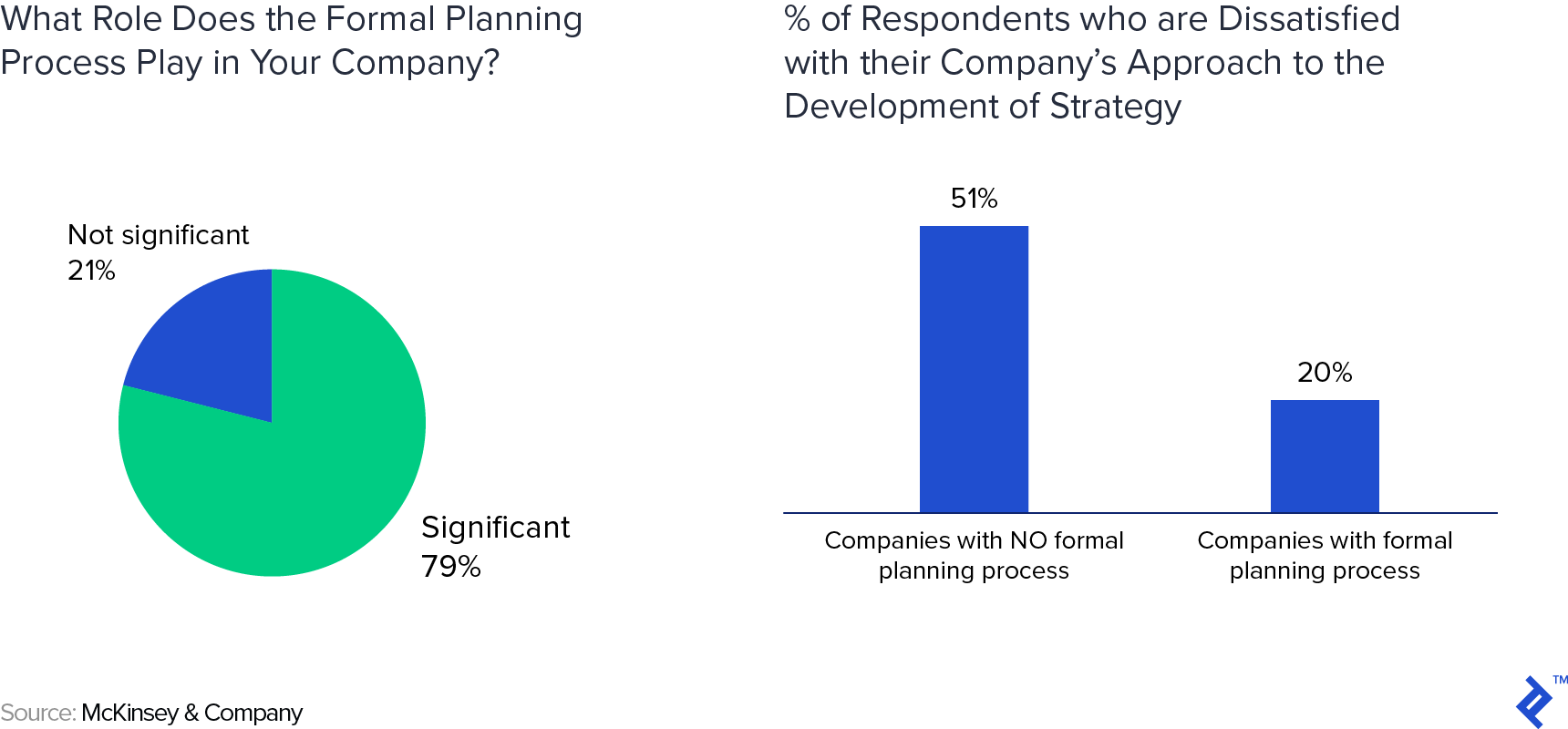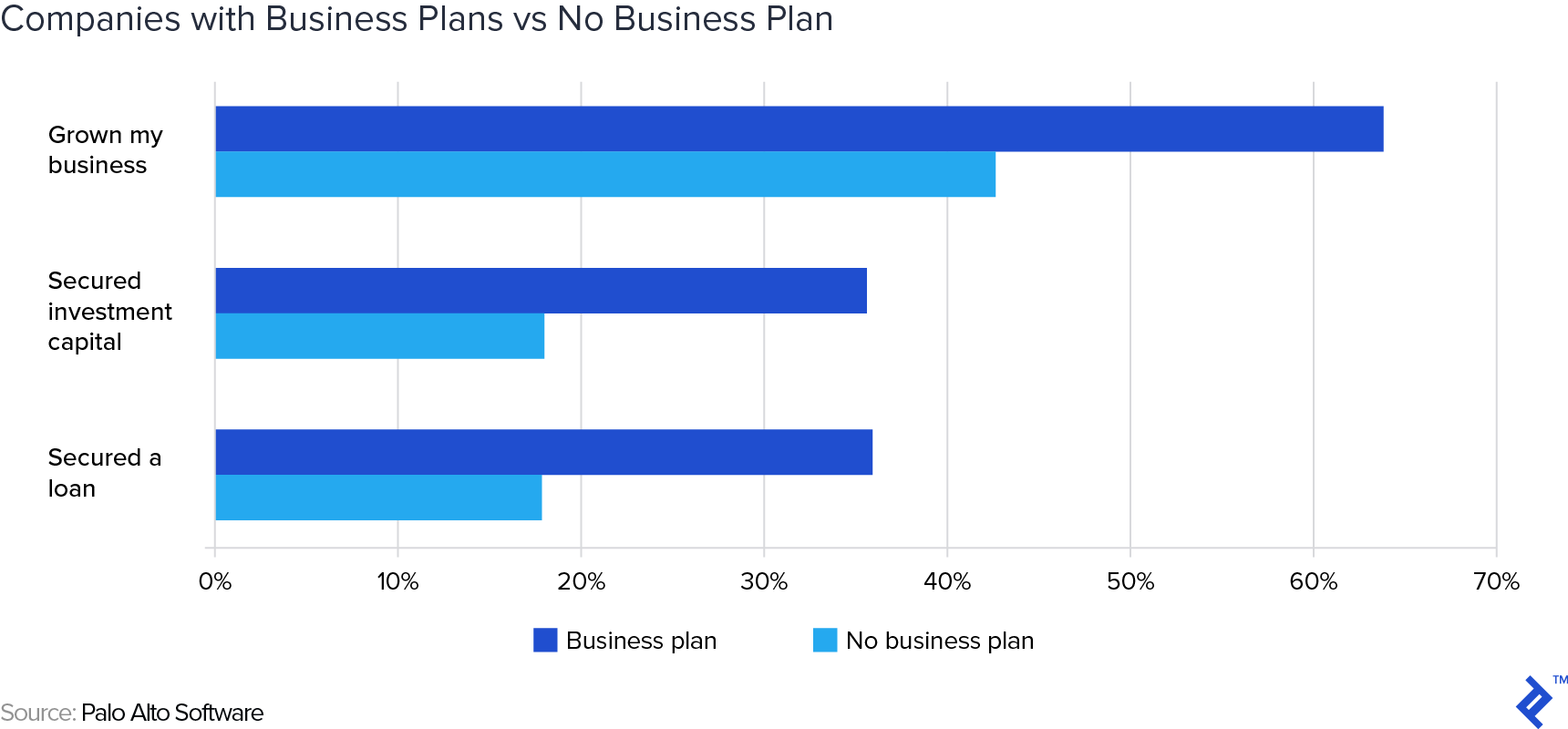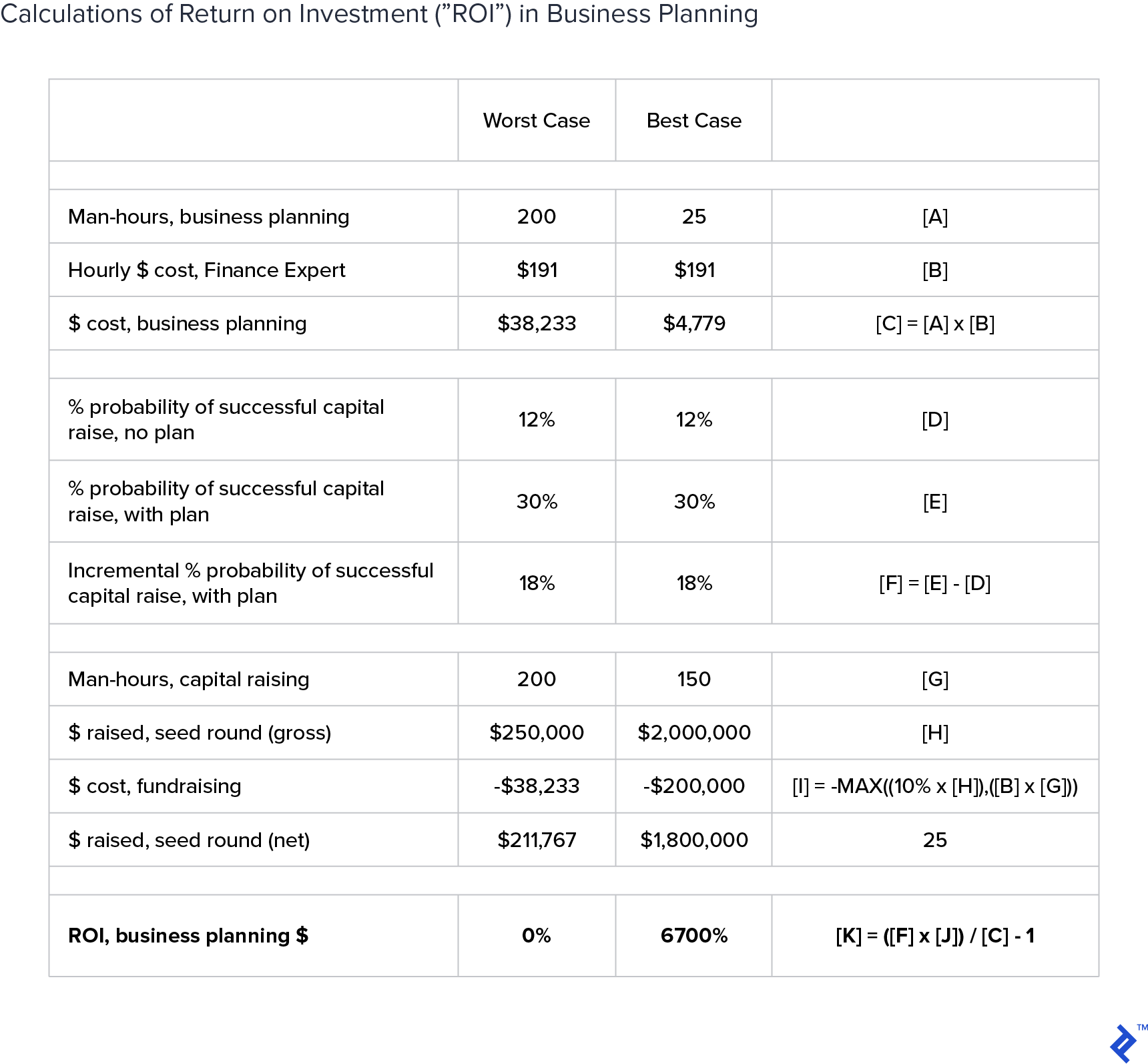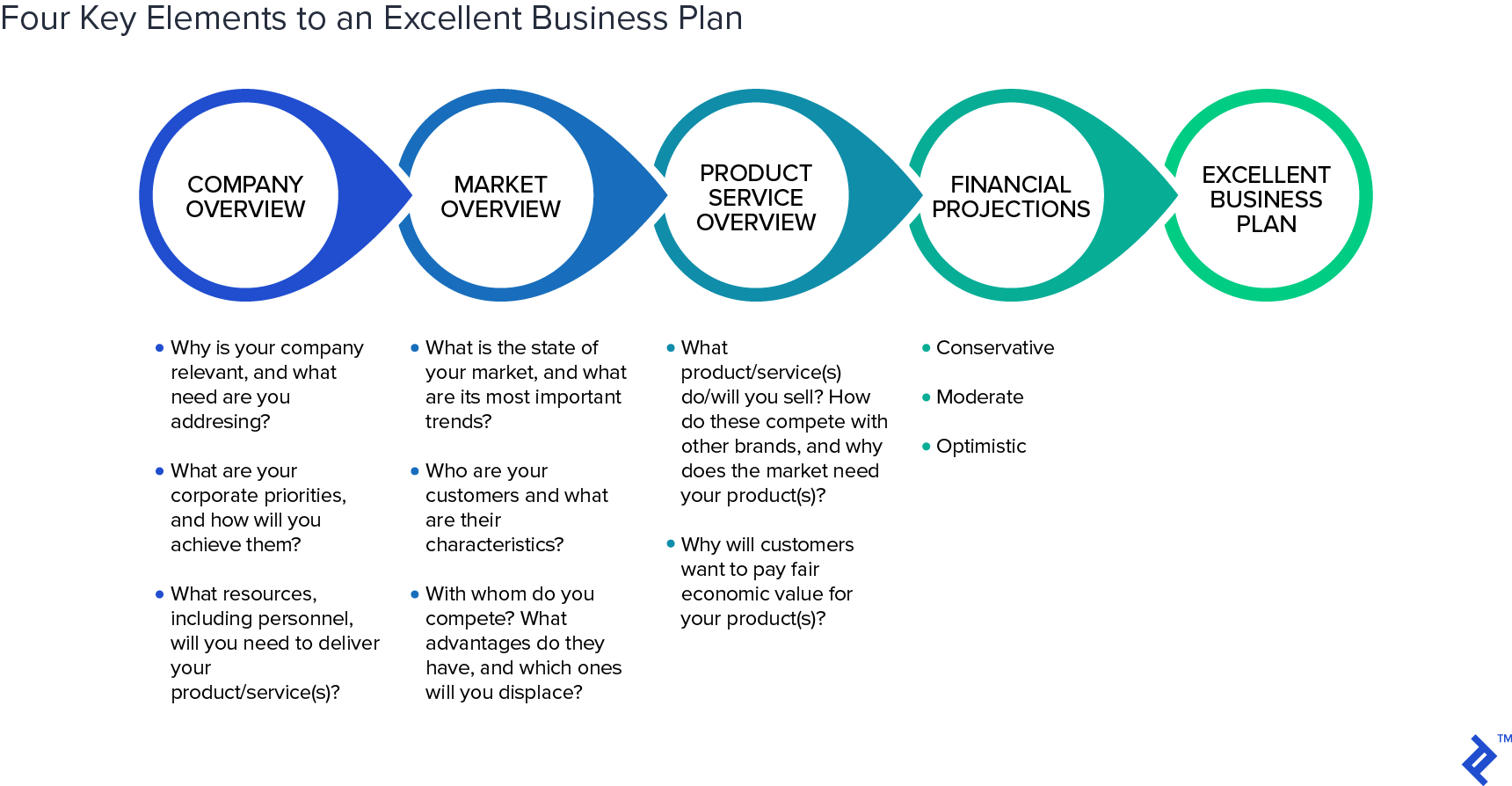

Importance of Business Plan to an Entrepreneur: Guide to Implement
Importance of Business Plan to an Entrepreneur – A business plan is an essential road map that entrepreneurs use to navigate the difficult process of starting and expanding a profitable firm. It performs as a strategic instrument for outlining the goals. Also, serve as a financial prediction of a company.
Whether you’re just starting or an experienced entrepreneur looking to sharpen your strategies, this guide will provide you with the knowledge and instructions you need to harness the power of a well-structured business plan.
Importance of a Business Plan to an Entrepreneurs
A strong business plan’s importance cannot be overstated since it provides entrepreneurs with a comprehensive framework for making decisions, attracting investors , securing funding, and navigating the dynamic business world. This article will cover the significance of a business plan. Also, offer practical guidance on how entrepreneurs can utilize it to advance their ventures. Let’s discuss what are the importance of a business plan to an entrepreneur.
A Business Plan Provides a Roadmap for a Business
A business plan may be compared to a road map that directs businesses toward commercial success. It acts as a strategy document that explains the objectives, strategies, and activities necessary to establish and expand a successful company. A business plan offers entrepreneurs a clear path to follow to accomplish their business goals. It is just like a roadmap that aids travelers in navigating new roads and arriving at their destination.
Picture you are going on a road trip to a dream destination. Before setting off, you would carefully plan your route, mark critical milestones, estimate travel time, and consider alternative paths in case of detours. Similarly, a business plan helps entrepreneurs chart their course by defining their vision, identifying target markets, assessing competition, setting financial goals, and mapping out strategies to overcome challenges.
Read – Can Anyone Be an Entrepreneur
Helps Entrepreneurs to Define Their Objectives
A business plan is a valuable tool that helps entrepreneurs in defining their objectives clearly. It offers business owners a well-organized framework for expressing their vision and establishing clear objectives. Entrepreneurs that go through the process of writing a business plan find clarity and concentration in their goals.
Imagine that an entrepreneur wishes to launch a sustainable clothing line. They would specify their goals through the business planning process, such as advancing ethical fashion, minimizing environmental effects, and making a good social impact. The business plan would outline these objectives and establish strategies and action steps to align the business activities with these goals.
Defined objectives in a business plan help entrepreneurs think critically, establish purpose, and guide decision-making. By setting SMART objectives, entrepreneurs can track performance, evaluate strategies, and make necessary adjustments to achieve desired outcomes. For example, an e-commerce business can increase online sales by 50% within a year, allowing regular monitoring, analysis, and adjustments to achieve its target.
Importance of Entrepreneurs to Identifying Their Target Market
When determining the target market for their goods or services, businesses place a lot of weight on their business plans. A business plan aids entrepreneurs in comprehending their potential clients, their demands, and their preferences by doing in-depth market research and analysis. This knowledge is essential for creating efficient marketing plans and modifying the company’s product offerings to satisfy the needs of the target market.
Let’s use the example of an entrepreneur who wants to launch a line of fitness clothes to demonstrate the significance of this. They would do market research as part of the process of writing a business plan to pinpoint their target consumers, such as fitness fanatics, gym visitors, or athletes. The business plan would include insightful information on the target market’s demographics, hobbies, and purchase patterns. With this knowledge, the business owner may carefully coordinate their product offering, price, and marketing messaging to appeal to the determined target demographic.
Entrepreneurs may focus on the appropriate audience, avoid one-size-fits-all techniques, and customize their products, services, and marketing strategies to their consumers’ needs by determining their target market. This aids in comprehending the competitive landscape, spotting gaps, and creating distinctive value propositions that appeal to the target market.
Read – Qualities of a Good Businessman
Helps Entrepreneurs to Assesses Competition
A business plan is a valuable tool that helps entrepreneurs assess their competition and gain a deeper understanding of the market landscape in which they operate. By following a structured approach, a business plan guides entrepreneurs on how to effectively analyze and evaluate their competitors.
A business plan helps entrepreneurs identify their key competitors by conducting research and gathering information about their products or services, pricing strategies, target market, marketing tactics, distribution channels, and customer reviews. This helps entrepreneurs understand their unique selling points and position themselves in the market. Entrepreneurs can compare their strengths and weaknesses to those of their competitors, identifying areas for differentiation. They also analyze market demand and customer preferences to identify gaps or underserved segments, tailoring their products or services to cater to these needs. A business plan guides entrepreneurs in positioning themselves against their competition, developing a unique value proposition that resonates with the target market. This roadmap helps entrepreneurs stay agile and adapt their strategies accordingly.
Importance to Evaluate Feasibility
When assessing the viability of their business idea, entrepreneurs must give the highest priority to their business plans. It acts as a helpful road map for business owners as they determine whether their idea is workable and has the potential to succeed.
Entrepreneurs should undertake in-depth market research and analysis, create financial predictions, perform a SWOT analysis, examine operational factors, and seek professional guidance to determine whether a company strategy is feasible. These steps help determine the feasibility of the business idea, identify potential blind spots, and develop contingency plans. By addressing factors such as resource availability, skills, expertise, infrastructure requirements, and operational processes, entrepreneurs can develop contingency plans and strategies to mitigate risks and ensure the venture’s success.
Read – Benefits of Being an Entrepreneur
Importance of Entrepreneurs to Attract Investors
A business plan holds immense importance for entrepreneurs when it comes to attracting investors to support their venture. A well-crafted business plan serves as a persuasive tool that demonstrates the potential of the business and convinces investors to provide financial backing.
To attract investors, entrepreneurs should create a compelling executive summary, detailed business description, market analysis, competitive advantage, financial projections, marketing and sales strategy, management team, risk assessment and mitigation, and clear exit strategy. These elements help investors understand the business’s growth potential, market potential, and competitive advantage.
Helps Entrepreneurs to Secures Their Funding
A business plan is essential for assisting entrepreneurs in obtaining finance for their projects. It acts as a roadmap that details the company’s potential, financial estimates, and growth plans. Entrepreneurs should write a succinct executive summary, thorough business description, market and competitive analysis, financial projections, funding requirements, marketing and sales strategy, management team, risk assessment, and mitigation, and supporting documents to obtain funding through a business plan.
These elements help investors and lenders understand the business’s unique value proposition, target market, revenue potential, and funding requirements. By presenting realistic financial projections, well-supported financial projections, and a well-thought-out marketing and sales strategy, entrepreneurs can secure funding and attract investors and lenders.
Read – Common Myths about Entrepreneurs
Business Plan Guides Entrepreneurs to Resource Allocation
A business plan serves as a valuable tool that guides entrepreneurs in allocating their resources effectively. It provides a clear roadmap for resource allocation by outlining the key areas of the business that require attention and investment.
To effectively allocate resources in a business plan, entrepreneurs should identify resource needs, set priorities, allocate financial resources based on projections and budget, allocate human resources based on skills and expertise, optimize time management, monitor and adjust resource allocation, seek efficiency and optimization, and regularly review and update the plan to reflect changes in resource needs. By doing so, entrepreneurs can optimize their resources and maximize the value derived from available resources. Regularly reviewing and updating the business plan ensures that resources are allocated effectively and efficiently.

Importance to Facilitate Decision-Making
A business plan holds great importance for entrepreneurs in facilitating effective decision-making throughout their entrepreneurial journey. It provides a framework that helps entrepreneurs make informed decisions by considering various factors and evaluating potential outcomes.
To effectively use a business plan for decision-making, entrepreneurs should define goals and objectives, gather relevant information, evaluate alternatives, consider financial implications, analyze risks and mitigation strategies, seek input from experts, regularly review and update the plan, and trust intuition and vision. This balances analytical thinking with an entrepreneurial instinct, ensuring long-term sustainability and informed decisions.
Read – Entrepreneur Mindset Books
Identifies Risks and Mitigation Strategies
A business plan plays a vital role in helping entrepreneurs identify risks and develop effective mitigation strategies. By carefully considering potential challenges and uncertainties, entrepreneurs can proactively address them and minimize their impact on the business.
To identify risks and develop mitigation strategies in a business plan, conduct a comprehensive risk assessment, analyze the impact and likelihood of risks, and develop specific strategies. Allocate resources, including financial, personnel, and time, to support the implementation of these strategies. Regularly monitor and update the business plan, seeking external expertise or consulting with industry professionals to gain insights. Communicate the identified risks and mitigation strategies clearly to stakeholders, including investors, lenders, and partners, to demonstrate professionalism and confidence in the business.
Importance of Entrepreneurs to Assists in Team Building
A business plan holds great importance for entrepreneurs in assisting them with team building, as it provides a clear framework for recruiting, developing, and managing their team effectively.
Entrepreneurs can use a business plan to aid in team building by defining roles and responsibilities, establishing recruitment criteria, developing a training and development plan, fostering a collaborative culture, setting performance goals and metrics, regularly evaluating and providing feedback, and fostering leadership and empowerment. These steps help attract and select the right individuals, align with the business plan’s objectives, and promote a supportive environment for innovation and creativity.
Read – Entrepreneurship Books for Students
Business Plan Supports Marketing and Sales Efforts
A business plan holds significant importance in supporting marketing and sales efforts for entrepreneurs. It provides a strategic roadmap for effectively promoting products or services and attracting customers. A business plan helps understand the target market, define the unique selling proposition (USP), develop marketing strategies, allocate budgets, monitor and measure results, and adapt and evolve.
By conducting thorough market research, defining the USP, and focusing on channels and tactics, entrepreneurs can effectively reach and engage their target audience. Regularly updating the business plan to reflect market trends and competitors can help entrepreneurs stay competitive and adapt their strategies accordingly.
Guides Product or Service Development
A business plan is essential for directing entrepreneurs as they create their goods or services. It offers a methodical way to determine consumer demands, specify product characteristics, and create a schedule for product development.
A business plan can guide product or service development by identifying customer needs, defining product or service features, setting development milestones, determining resource requirements, conducting testing and iteration, and integrating marketing and launch strategies. This helps entrepreneurs stay focused, track progress, and ensure the timely completion of activities. The plan should also outline the necessary funding, collaborations, and resources needed for the development process. By incorporating continuous improvement and iterative development, entrepreneurs can create a high-quality offering that meets or exceeds customer expectations.
Read – Green Innovation
Importance of Entrepreneurs to Manage Finances Effectively
A business plan holds great importance for entrepreneurs when it comes to managing finances effectively. It offers a thorough foundation for comprehending the financial facets of the firm and aids business owners in making defensible choices to maximize financial resources.
Entrepreneurs should construct a financial overview, define financial goals and objectives, develop a budget, track financial performance, plan for managing cash flow, and seek expert financial assistance to manage their money efficiently. This helps entrepreneurs forecast future financial needs, allocate resources effectively, and identify potential issues early on. By implementing these strategies, entrepreneurs can ensure the sustainability of their businesses and make informed decisions about their financial future.
Business Plan Measures Progress and Success
A business plan holds significant importance for entrepreneurs in measuring their progress and success. They may compare their accomplishments to it as a standard to see if they are progressing in the correct path.
Establish Key Performance Indicators (KPIs) that are in line with the goals of the business’s plan to successfully measure the growth and success of entrepreneurs. Regularly track and monitor KPIs to assess progress and make informed decisions. Conduct periodic reviews to evaluate progress against the plan, identify areas for adjustments or course corrections, and celebrate milestones and successes. Continuously update and evolve the business plan to reflect evolving goals, strategies, and market conditions.
Read – Difference Between Entrepreneur and Intrapreneur
Business Plan Importance to Enhance Credibility
A business plan plays a crucial role in enhancing the credibility of entrepreneurs and their ventures. It demonstrates to stakeholders, including potential investors, lenders, partners, and even customers, that entrepreneurs have a well-thought-out and strategic approach to their business.
To enhance entrepreneurs’ credibility, a well-presented business plan should present a professional image, conduct thorough market research, highlight the unique selling proposition, provide detailed financial projections, incorporate risk analysis and mitigation strategies, seek third-party validation, and regularly update and refine the plan. This shows credibility and commitment to continuous improvement, demonstrating the business’s ability to adapt and thrive in the ever-changing landscape.
Business Plan Provides a Basis for Partnerships
When forming partnerships, entrepreneurs place a lot of weight on their business plans. It offers a strong platform for prospective partners to comprehend the company. Also, its objectives, and the value it brings.
To successfully attract and establish partnerships, entrepreneurs should clearly define their business, highlight their target customers, market opportunities, and competitive advantages, outline partnership opportunities, develop partnership plans, and use the business plan as a communication tool. This aids potential partners in comprehending the goals and potential of the company as well as the growth potential of the market. Entrepreneurs may successfully convey their vision, ambitions, and potential to potential partners by emphasizing the advantages of collaboration, promoting development and success for both parties.
Read – Imitative Entrepreneurship
Importance of Entrepreneurs to Do Business Expansion
A business plan plays a crucial role for entrepreneurs when it comes to business expansion. It provides a strategic framework and guidance for expanding operations, entering new markets, or launching new products or services.
Entrepreneurs can use a business plan to facilitate expansion by evaluating current performance, defining expansion goals and objectives, conducting market research, developing a strategic expansion plan, assessing financial requirements, monitoring and adjusting the plan as needed, and continuously monitoring and adjusting the plan to ensure success. This approach helps businesses navigate market dynamics, identify strengths and weaknesses, and adapt to unforeseen challenges or opportunities.
Guides Entrepreneurs to Succession Planning
A business plan is of significant importance when it comes to guiding entrepreneurs in succession planning, which involves preparing for the future transition of leadership and ownership within a business.
To effectively use a business plan for succession planning, assess current leadership and ownership, identify potential successors, define succession goals and timeline, develop a succession plan, communicate with stakeholders, and regularly review and update the plan. This process ensures alignment with the long-term vision and aspirations of the business and its stakeholders. Regularly assess the progress of potential successors and provide development opportunities to enhance their skills and knowledge.
Importance to Increases Self-Awareness
A business plan is crucial for entrepreneurs because it may help them become more self-aware and better grasp their advantages, disadvantages, and possibilities for growth.
Entrepreneurs should consider their objectives and values, perform a SWOT analysis, create reasonable company goals, ask for criticism and mentoring, constantly evaluate their success, and change to improve their self-awareness. By identifying strengths, weaknesses, opportunities, and threats, entrepreneurs can create a clear vision and align their business plans with their values. By seeking feedback and mentoring, entrepreneurs can develop a stronger self-awareness and improve their business strategies.

An effective business plan is a crucial tool for entrepreneurs . It gives them a path to success. A successful business plan may help entrepreneurs define clear goals. Also, identify their target market, analyze the competition, determine whether their idea is feasible, draw in investors, manage funds, and track their progress. It functions as a manual to assist business owners make wise decisions, manage resources effectively, and adjust to changing conditions.
A solid business plan is crucial for entrepreneurs to navigate the complex commercial world, guiding their companies toward expansion, profitability, and long-term success. It should be evaluated and revised regularly to reflect company demands, serving as a compass for entrepreneurs.
FAQ about the Importance of Business Plans to Entrepreneurs
Why is a business plan important.
Because it gives business owners a clear road map for their venture, a business plan is crucial. It aids in establishing goals, locating target markets, evaluating rivalry, obtaining finance, and coming to wise conclusions. Describing their vision and plans, it functions as a strategic instrument that leads business owners toward success.
When is the Best Time to Write a Business Plan?
Typically, before launching a new firm. It is the ideal time to draft a business plan. Likewise, when a current firm is expected to undergo significant adjustments. Be sure you have a solid strategy in place before approaching investors, looking for finance. Especially, starting a business. Making a business plan, though, is never too late, and you can always change it as your company grows.
What is a Business Plan’s Main Objective?
A business plan’s main objective is to outline an organization’s goals, strategies, and financial predictions. It helps business owners communicate their vision, pinpoint their target market, assess the profitability of their endeavor, entice investors, and allocate their resources effectively. It serves as a compass for monitoring growth and making adjustments as needed.
What are the Typical Challenges of Writing a Business Plan?
Entrepreneurs face hurdles while drafting a business plan, such as limited time and resources, writing skills, market research, financial predictions, and strategic planning. The complexity of the process may be increased by using accurate market data, reasonable estimates, strategic planning, clear writing, and managing other elements of the firm.
Similar Posts

12 Questions to Ask Before You Start a Business: Ideal Answers
The ideal time to plant a tree was 20 years ago. The second ideal time is now. So, have you started a business? If not, this is the time to start your business.
Starting an entrepreneurship business is akin to embarking on a daring adventure, transforming a mere idea into a vibrant, living entity. It’s not just about signalling your presence. It’s about crafting a system, nurturing innovation, and forging a distinctive identity in the economic realm.

Product Planning Process: Secret Weapon for Winning Products
The product planning process is not a straight line from idea to launch. It’s a journey of discovery, iteration, and adaptation. In the entrepreneurial landscape, where innovation is the heartbeat. Mastering the Product Planning Process is nothing short of wielding a secret weapon for crafting winning products.

Opportunity Seeking in Entrepreneurship: Spotting Entrepreneurial Gems
Opportunities don’t just happen to you. You have to create them. These insightful words by Howard Hughes encapsulate the essence of our entrepreneurial journey. In the realm of business, waiting for opportunities to knock on your door is like waiting for a ship at the airport. It rarely happens. Successful entrepreneurs understand the art of creating opportunities through a deliberate and strategic process. It is known as ‘Opportunity Seeking in Entrepreneurship.’

Opportunity Entrepreneur & Opportunity Entrepreneurship: Art of Business Opportunities
The impact of opportunity entrepreneurship extends beyond economic benefits, fostering social progress and driving positive change in communities. – Mark R. Jones and Alan B. Krueger The impact of opportunity entrepreneurship extends beyond economic benefits, fostering social progress and driving positive change in communities. – Mark R. Jones and Alan B. Krueger Opportunity entrepreneurs envision social progress and positive transformation beyond profit margins. This article explores the ‘Art of Business Opportunities’, focusing on the traits that set them apart and the importance, examples, and challenges they face.

Global Entrepreneurs: Journey of Global Entrepreneurship
Picture a world where the dreams of individuals know no bounds, where opportunities are limitless, and where transformative change can originate from any corner of the globe. This is the world that global entrepreneurs are fashioning. In an age defined by connectivity and intercontinental possibilities, the role of global entrepreneurs has never been more critical.

Corporate Entrepreneurship Meaning & Types (fully explained)
Corporate entrepreneurship has increasingly been identified as one of the best ways to achieve high grades in organizational performance In this 21st century. Corporate entrepreneurship contains two major types. Those are; Corporate venturing and Strategic entrepreneurship.
Leave a Reply Cancel reply
Your email address will not be published. Required fields are marked *
Save my name, email, and website in this browser for the next time I comment.
Sign up for our newsletter for product updates, new blog posts, and the chance to be featured in our Small Business Spotlight!

The importance of a business plan
Business plans are like road maps: it’s possible to travel without one, but that will only increase the odds of getting lost along the way.
Owners with a business plan see growth 30% faster than those without one, and 71% of the fast-growing companies have business plans . Before we get into the thick of it, let’s define and go over what a business plan actually is.
What is a business plan?
A business plan is a 15-20 page document that outlines how you will achieve your business objectives and includes information about your product, marketing strategies, and finances. You should create one when you’re starting a new business and keep updating it as your business grows.
Rather than putting yourself in a position where you may have to stop and ask for directions or even circle back and start over, small business owners often use business plans to help guide them. That’s because they help them see the bigger picture, plan ahead, make important decisions, and improve the overall likelihood of success.
Why is a business plan important?
A well-written business plan is an important tool because it gives entrepreneurs and small business owners, as well as their employees, the ability to lay out their goals and track their progress as their business begins to grow. Business planning should be the first thing done when starting a new business. Business plans are also important for attracting investors so they can determine if your business is on the right path and worth putting money into.
Business plans typically include detailed information that can help improve your business’s chances of success, like:
- A market analysis : gathering information about factors and conditions that affect your industry
- Competitive analysis : evaluating the strengths and weaknesses of your competitors
- Customer segmentation : divide your customers into different groups based on specific characteristics to improve your marketing
- Marketing: using your research to advertise your business
- Logistics and operations plans : planning and executing the most efficient production process
- Cash flow projection : being prepared for how much money is going into and out of your business
- An overall path to long-term growth
10 reasons why you need a business plan
I know what you’re thinking: “Do I really need a business plan? It sounds like a lot of work, plus I heard they’re outdated and I like figuring things out as I go...”.
The answer is: yes, you really do need a business plan! As entrepreneur Kevin J. Donaldson said, “Going into business without a business plan is like going on a mountain trek without a map or GPS support—you’ll eventually get lost and starve! Though it may sound tedious and time-consuming, business plans are critical to starting your business and setting yourself up for success.
To outline the importance of business plans and make the process sound less daunting, here are 10 reasons why you need one for your small business.
1. To help you with critical decisions
The primary importance of a business plan is that they help you make better decisions. Entrepreneurship is often an endless exercise in decision making and crisis management. Sitting down and considering all the ramifications of any given decision is a luxury that small businesses can’t always afford. That’s where a business plan comes in.
Building a business plan allows you to determine the answer to some of the most critical business decisions ahead of time.
Creating a robust business plan is a forcing function—you have to sit down and think about major components of your business before you get started, like your marketing strategy and what products you’ll sell. You answer many tough questions before they arise. And thinking deeply about your core strategies can also help you understand how those decisions will impact your broader strategy.
*While subscribed to Wave’s Pro Plan, get 2.9% + $0 (Visa, Mastercard, Discover) and 3.4% + $0 (Amex) per transaction for unlimited transactions during the offer period. After the offer ends: over 10 transactions per month at 2.9% + $0.60 (Visa, Mastercard, Discover) and 3.4% + $0.60 (Amex) per transaction. Discover processing is only available to US customers. See full terms and conditions.
See Terms of Service for more information.
Send invoices, get paid, track expenses, pay your team, and balance your books with our financial management software.
2. To iron out the kinks
Putting together a business plan requires entrepreneurs to ask themselves a lot of hard questions and take the time to come up with well-researched and insightful answers. Even if the document itself were to disappear as soon as it’s completed, the practice of writing it helps to articulate your vision in realistic terms and better determine if there are any gaps in your strategy.
3. To avoid the big mistakes
Only about half of small businesses are still around to celebrate their fifth birthday . While there are many reasons why small businesses fail, many of the most common are purposefully addressed in business plans.
According to data from CB Insights , some of the most common reasons businesses fail include:
- No market need : No one wants what you’re selling.
- Lack of capital : Cash flow issues or businesses simply run out of money.
- Inadequate team : This underscores the importance of hiring the right people to help you run your business.
- Stiff competition : It’s tough to generate a steady profit when you have a lot of competitors in your space.
- Pricing : Some entrepreneurs price their products or services too high or too low—both scenarios can be a recipe for disaster.
The exercise of creating a business plan can help you avoid these major mistakes. Whether it’s cash flow forecasts or a product-market fit analysis , every piece of a business plan can help spot some of those potentially critical mistakes before they arise. For example, don’t be afraid to scrap an idea you really loved if it turns out there’s no market need. Be honest with yourself!
Get a jumpstart on your business plan by creating your own cash flow projection .
4. To prove the viability of the business
Many businesses are created out of passion, and while passion can be a great motivator, it’s not a great proof point.
Planning out exactly how you’re going to turn that vision into a successful business is perhaps the most important step between concept and reality. Business plans can help you confirm that your grand idea makes sound business sense.

A critical component of your business plan is the market research section. Market research can offer deep insight into your customers, your competitors, and your chosen industry. Not only can it enlighten entrepreneurs who are starting up a new business, but it can also better inform existing businesses on activities like marketing, advertising, and releasing new products or services.
Want to prove there’s a market gap? Here’s how you can get started with market research.
5. To set better objectives and benchmarks
Without a business plan, objectives often become arbitrary, without much rhyme or reason behind them. Having a business plan can help make those benchmarks more intentional and consequential. They can also help keep you accountable to your long-term vision and strategy, and gain insights into how your strategy is (or isn’t) coming together over time.
6. To communicate objectives and benchmarks
Whether you’re managing a team of 100 or a team of two, you can’t always be there to make every decision yourself. Think of the business plan like a substitute teacher, ready to answer questions any time there’s an absence. Let your staff know that when in doubt, they can always consult the business plan to understand the next steps in the event that they can’t get an answer from you directly.
Sharing your business plan with team members also helps ensure that all members are aligned with what you’re doing, why, and share the same understanding of long-term objectives.
7. To provide a guide for service providers
Small businesses typically employ contractors , freelancers, and other professionals to help them with tasks like accounting , marketing, legal assistance, and as consultants. Having a business plan in place allows you to easily share relevant sections with those you rely on to support the organization, while ensuring everyone is on the same page.
8. To secure financing
Did you know you’re 2.5x more likely to get funded if you have a business plan?If you’re planning on pitching to venture capitalists, borrowing from a bank, or are considering selling your company in the future, you’re likely going to need a business plan. After all, anyone that’s interested in putting money into your company is going to want to know it’s in good hands and that it’s viable in the long run. Business plans are the most effective ways of proving that and are typically a requirement for anyone seeking outside financing.
Learn what you need to get a small business loan.
9. To better understand the broader landscape
No business is an island, and while you might have a strong handle on everything happening under your own roof, it’s equally important to understand the market terrain as well. Writing a business plan can go a long way in helping you better understand your competition and the market you’re operating in more broadly, illuminate consumer trends and preferences, potential disruptions and other insights that aren’t always plainly visible.
10. To reduce risk
Entrepreneurship is a risky business, but that risk becomes significantly more manageable once tested against a well-crafted business plan. Drawing up revenue and expense projections, devising logistics and operational plans, and understanding the market and competitive landscape can all help reduce the risk factor from an inherently precarious way to make a living. Having a business plan allows you to leave less up to chance, make better decisions, and enjoy the clearest possible view of the future of your company.
Understanding the importance of a business plan
Now that you have a solid grasp on the “why” behind business plans, you can confidently move forward with creating your own.
Remember that a business plan will grow and evolve along with your business, so it’s an important part of your whole journey—not just the beginning.
Related Posts
Now that you’ve read up on the purpose of a business plan, check out our guide to help you get started.

The information and tips shared on this blog are meant to be used as learning and personal development tools as you launch, run and grow your business. While a good place to start, these articles should not take the place of personalized advice from professionals. As our lawyers would say: “All content on Wave’s blog is intended for informational purposes only. It should not be considered legal or financial advice.” Additionally, Wave is the legal copyright holder of all materials on the blog, and others cannot re-use or publish it without our written consent.

Be Stress Free and Tax Ready 🙌 70% Off for 4 Months. BUY NOW & SAVE
70% Off for 4 Months Buy Now & Save
Wow clients with professional invoices that take seconds to create
Quick and easy online, recurring, and invoice-free payment options
Automated, to accurately track time and easily log billable hours
Reports and tools to track money in and out, so you know where you stand
Easily log expenses and receipts to ensure your books are always tax-time ready
Tax time and business health reports keep you informed and tax-time ready
Automatically track your mileage and never miss a mileage deduction again
Time-saving all-in-one bookkeeping that your business can count on
Track project status and collaborate with clients and team members
Organized and professional, helping you stand out and win new clients
Set clear expectations with clients and organize your plans for each project
Client management made easy, with client info all in one place
Pay your employees and keep accurate books with Payroll software integrations
- Team Management
FreshBooks integrates with over 100 partners to help you simplify your workflows
Send invoices, track time, manage payments, and more…from anywhere.
- Freelancers
- Self-Employed Professionals
- Businesses With Employees
- Businesses With Contractors
- Marketing & Agencies
- Construction & Trades
- IT & Technology
- Business & Prof. Services
- Accounting Partner Program
- Collaborative Accounting™
- Accountant Hub
- Reports Library
- FreshBooks vs QuickBooks
- FreshBooks vs HoneyBook
- FreshBooks vs Harvest
- FreshBooks vs Wave
- FreshBooks vs Xero
- Free Invoice Generator
- Invoice Templates
- Accounting Templates
- Business Name Generator
- Estimate Templates
- Help Center
- Business Loan Calculator
- Mark Up Calculator
Call Toll Free: 1.866.303.6061
1-888-674-3175
- All Articles
- Productivity
- Project Management
- Bookkeeping
Resources for Your Growing Business
The importance of business plan: 5 key reasons.

A key part of any business is its business plan. They can help define the goals of your business and help it reach success. A good business plan can also help you develop an adequate marketing strategy. There are a number of reasons all business owners need business plans, keep reading to learn more!
Here’s What We’ll Cover:
What Is a Business Plan?
5 reasons you need a well-written business plan, how do i make a business plan, key takeaways.
A business plan contains detailed information that can help determine its success. Some of this information can include the following:
- Market analysis
- Cash flow projection
- Competitive analysis
- Financial statements and financial projections
- An operating plan
A solid business plan is a good way to attract potential investors. It can also help you display to business partners that you have a successful business growing. In a competitive landscape, a formal business plan is your key to success.

Check out all of the biggest reasons you need a good business plan below.
1. To Secure Funding
Whether you’re seeking funding from a venture capitalist or a bank, you’ll need a business plan. Business plans are the foundation of a business. They tell the parties that you’re seeking funding from whether or not you’re worth investing in. If you need any sort of outside financing, you’ll need a good business plan to secure it.
2. Set and Communicate Goals
A business plan gives you a tangible way of reviewing your business goals. Business plans revolve around the present and the future. When you establish your goals and put them in writing, you’re more likely to reach them. A strong business plan includes these goals, and allows you to communicate them to investors and employees alike.
3. Prove Viability in the Market
While many businesses are born from passion, not many will last without an effective business plan. While a business concept may seem sound, things may change once the specifics are written down. Often, people who attempt to start a business without a plan will fail. This is because they don’t take into account all of the planning and funds needed to get a business off of the ground.
Market research is a large part of the business planning process. It lets you review your potential customers, as well as the competition, in your field. By understanding both you can set price points for products or services. Sometimes, it may not make sense to start a business based on the existing competition. Other times, market research can guide you to effective marketing strategies that others lack. To have a successful business, it has to be viable. A business plan will help you determine that.
4. They Help Owners Avoid Failure
Far too often, small businesses fail. Many times, this is due to the lack of a strong business plan. There are many reasons that small businesses fail, most of which can be avoided by developing a business plan. Some of them are listed below, which can be avoided by having a business plan:
- The market doesn’t need the business’s product or service
- The business didn’t take into account the amount of capital needed
- The market is oversaturated
- The prices set by the business are too high, pushing potential customers away
Any good business plan includes information to help business owners avoid these issues.

5. Business Plans Reduce Risk
Related to the last reason, business plans help reduce risk. A well-thought-out business plan helps reduce risky decisions. They help business owners make informed decisions based on the research they conduct. Any business owner can tell you that the most important part of their job is making critical decisions. A business plan that factors in all possible situations helps make those decisions.
Luckily, there are plenty of tools available to help you create a business plan. A simple search can lead you to helpful tools, like a business plan template . These are helpful, as they let you fill in the information as you go. Many of them provide basic instructions on how to create the business plan, as well.
If you plan on starting a business, you’ll need a business plan. They’re good for a vast number of things. Business plans help owners make informed decisions, as well as set goals and secure funding. Don’t put off putting together your business plan!
If you’re in the planning stages of your business, be sure to check out our resource hub . We have plenty of valuable resources and articles for you when you’re just getting started. Check it out today!
RELATED ARTICLES

Save Time Billing and Get Paid 2x Faster With FreshBooks
Want More Helpful Articles About Running a Business?
Get more great content in your Inbox.
By subscribing, you agree to receive communications from FreshBooks and acknowledge and agree to FreshBook’s Privacy Policy . You can unsubscribe at any time by contacting us at [email protected].
👋 Welcome to FreshBooks
To see our product designed specifically for your country, please visit the United States site.
What is a Business Plan? Definition and Resources

9 min. read
Updated March 4, 2024
If you’ve ever jotted down a business idea on a napkin with a few tasks you need to accomplish, you’ve written a business plan — or at least the very basic components of one.
The origin of formal business plans is murky. But they certainly go back centuries. And when you consider that 20% of new businesses fail in year 1 , and half fail within 5 years, the importance of thorough planning and research should be clear.
But just what is a business plan? And what’s required to move from a series of ideas to a formal plan? Here we’ll answer that question and explain why you need one to be a successful business owner.
- What is a business plan?

A business plan lays out a strategic roadmap for any new or growing business.
Any entrepreneur with a great idea for a business needs to conduct market research , analyze their competitors , validate their idea by talking to potential customers, and define their unique value proposition .
The business plan captures that opportunity you see for your company: it describes your product or service and business model , and the target market you’ll serve.
It also includes details on how you’ll execute your plan: how you’ll price and market your solution and your financial projections .
Reasons for writing a business plan
If you’re asking yourself, ‘Do I really need to write a business plan?’ consider this fact:
Companies that commit to planning grow 30% faster than those that don’t.
Creating a business plan is crucial for businesses of any size or stage.
If you plan to raise funds for your business through a traditional bank loan or SBA loan , none of them will want to move forward without seeing your business plan. Venture capital firms may or may not ask for one, but you’ll still need to do thorough planning to create a pitch that makes them want to invest.
But it’s more than just a means of getting your business funded . The plan is also your roadmap to identify and address potential risks.
It’s not a one-time document. Your business plan is a living guide to ensure your business stays on course.
Related: 14 of the top reasons why you need a business plan
Brought to you by
Create a professional business plan
Using ai and step-by-step instructions.
Secure funding
Validate ideas
Build a strategy
What research shows about business plans
Numerous studies have established that planning improves business performance:
- 71% of fast-growing companies have business plans that include budgets, sales goals, and marketing and sales strategies.
- Companies that clearly define their value proposition are more successful than those that can’t.
- Companies or startups with a business plan are more likely to get funding than those without one.
- Starting the business planning process before investing in marketing reduces the likelihood of business failure.
The planning process significantly impacts business growth for existing companies and startups alike.
Read More: Research-backed reasons why writing a business plan matters
When should you write a business plan?
No two business plans are alike.
Yet there are similar questions for anyone considering writing a plan to answer. One basic but important question is when to start writing it.
A Harvard Business Review study found that the ideal time to write a business plan is between 6 and 12 months after deciding to start a business.
But the reality can be more nuanced – it depends on the stage a business is in, or the type of business plan being written.
Ideal times to write a business plan include:
- When you have an idea for a business
- When you’re starting a business
- When you’re preparing to buy (or sell)
- When you’re trying to get funding
- When business conditions change
- When you’re growing or scaling your business
Read More: The best times to write or update your business plan
How often should you update your business plan?
As is often the case, how often a business plan should be updated depends on your circumstances.
A business plan isn’t a homework assignment to complete and forget about. At the same time, no one wants to get so bogged down in the details that they lose sight of day-to-day goals.
But it should cover new opportunities and threats that a business owner surfaces, and incorporate feedback they get from customers. So it can’t be a static document.
For an entrepreneur at the ideation stage, writing and checking back on their business plan will help them determine if they can turn that idea into a profitable business .
And for owners of up-and-running businesses, updating the plan (or rewriting it) will help them respond to market shifts they wouldn’t be prepared for otherwise.
It also lets them compare their forecasts and budgets to actual financial results. This invaluable process surfaces where a business might be out-performing expectations and where weak performance may require a prompt strategy change.
The planning process is what uncovers those insights.
Related Reading: 10 prompts to help you write a business plan with AI
- How long should your business plan be?
Thinking about a business plan strictly in terms of page length can risk overlooking more important factors, like the level of detail or clarity in the plan.
Not all of the plan consists of writing – there are also financial tables, graphs, and product illustrations to include.
But there are a few general rules to consider about a plan’s length:
- Your business plan shouldn’t take more than 15 minutes to skim.
- Business plans for internal use (not for a bank loan or outside investment) can be as short as 5 to 10 pages.
A good practice is to write your business plan to match the expectations of your audience.
If you’re walking into a bank looking for a loan, your plan should match the formal, professional style that a loan officer would expect . But if you’re writing it for stakeholders on your own team—shorter and less formal (even just a few pages) could be the better way to go.
The length of your plan may also depend on the stage your business is in.
For instance, a startup plan won’t have nearly as much financial information to include as a plan written for an established company will.
Read More: How long should your business plan be?
What information is included in a business plan?
The contents of a plan business plan will vary depending on the industry the business is in.
After all, someone opening a new restaurant will have different customers, inventory needs, and marketing tactics to consider than someone bringing a new medical device to the market.
But there are some common elements that most business plans include:
- Executive summary: An overview of the business operation, strategy, and goals. The executive summary should be written last, despite being the first thing anyone will read.
- Products and services: A description of the solution that a business is bringing to the market, emphasizing how it solves the problem customers are facing.
- Market analysis: An examination of the demographic and psychographic attributes of likely customers, resulting in the profile of an ideal customer for the business.
- Competitive analysis: Documenting the competitors a business will face in the market, and their strengths and weaknesses relative to those competitors.
- Marketing and sales plan: Summarizing a business’s tactics to position their product or service favorably in the market, attract customers, and generate revenue.
- Operational plan: Detailing the requirements to run the business day-to-day, including staffing, equipment, inventory, and facility needs.
- Organization and management structure: A listing of the departments and position breakdown of the business, as well as descriptions of the backgrounds and qualifications of the leadership team.
- Key milestones: Laying out the key dates that a business is projected to reach certain milestones , such as revenue, break-even, or customer acquisition goals.
- Financial plan: Balance sheets, cash flow forecast , and sales and expense forecasts with forward-looking financial projections, listing assumptions and potential risks that could affect the accuracy of the plan.
- Appendix: All of the supporting information that doesn’t fit into specific sections of the business plan, such as data and charts.
Read More: Use this business plan outline to organize your plan
- Different types of business plans
A business plan isn’t a one-size-fits-all document. There are numerous ways to create an effective business plan that fits entrepreneurs’ or established business owners’ needs.
Here are a few of the most common types of business plans for small businesses:
- One-page plan : Outlining all of the most important information about a business into an adaptable one-page plan.
- Growth plan : An ongoing business management plan that ensures business tactics and strategies are aligned as a business scales up.
- Internal plan : A shorter version of a full business plan to be shared with internal stakeholders – ideal for established companies considering strategic shifts.
Business plan vs. operational plan vs. strategic plan
- What questions are you trying to answer?
- Are you trying to lay out a plan for the actual running of your business?
- Is your focus on how you will meet short or long-term goals?
Since your objective will ultimately inform your plan, you need to know what you’re trying to accomplish before you start writing.
While a business plan provides the foundation for a business, other types of plans support this guiding document.
An operational plan sets short-term goals for the business by laying out where it plans to focus energy and investments and when it plans to hit key milestones.
Then there is the strategic plan , which examines longer-range opportunities for the business, and how to meet those larger goals over time.
Read More: How to use a business plan for strategic development and operations
- Business plan vs. business model
If a business plan describes the tactics an entrepreneur will use to succeed in the market, then the business model represents how they will make money.
The difference may seem subtle, but it’s important.
Think of a business plan as the roadmap for how to exploit market opportunities and reach a state of sustainable growth. By contrast, the business model lays out how a business will operate and what it will look like once it has reached that growth phase.
Learn More: The differences between a business model and business plan
- Moving from idea to business plan
Now that you understand what a business plan is, the next step is to start writing your business plan .
If you’re stuck, start with a one-page business plan and check out our collection of over 550 business plan examples for inspiration. They’re broken out over dozens of industries—you can even copy and paste sections into your plan and rewrite them with information specific to your business.
See why 1.2 million entrepreneurs have written their business plans with LivePlan
Tim Berry is the founder and chairman of Palo Alto Software , a co-founder of Borland International, and a recognized expert in business planning. He has an MBA from Stanford and degrees with honors from the University of Oregon and the University of Notre Dame. Today, Tim dedicates most of his time to blogging, teaching and evangelizing for business planning.

Table of Contents
- Reasons to write a business plan
- Business planning research
- When to write a business plan
- When to update a business plan
- Information to include
- Business vs. operational vs. strategic plans
Related Articles

12 Min. Read
How to Write a Food Truck Business Plan (2024 + Template)

10 Min. Read
How to Create a Convincing Problem and Solution Statement

8 Min. Read
How to Format a Business Plan in 8 Simple Steps

6 Min. Read
How to Do a SWOT Analysis for Better Strategic Planning
The Bplans Newsletter
The Bplans Weekly
Subscribe now for weekly advice and free downloadable resources to help start and grow your business.
We care about your privacy. See our privacy policy .
Tax Season Savings
Get 40% off LivePlan
The #1 rated business plan software
Transform Tax Season into Growth Season
Discover the world’s #1 plan building software

- Search Search Please fill out this field.
What Is a Business Plan?
Understanding business plans, how to write a business plan, common elements of a business plan, how often should a business plan be updated, the bottom line, business plan: what it is, what's included, and how to write one.
Adam Hayes, Ph.D., CFA, is a financial writer with 15+ years Wall Street experience as a derivatives trader. Besides his extensive derivative trading expertise, Adam is an expert in economics and behavioral finance. Adam received his master's in economics from The New School for Social Research and his Ph.D. from the University of Wisconsin-Madison in sociology. He is a CFA charterholder as well as holding FINRA Series 7, 55 & 63 licenses. He currently researches and teaches economic sociology and the social studies of finance at the Hebrew University in Jerusalem.
:max_bytes(150000):strip_icc():format(webp)/adam_hayes-5bfc262a46e0fb005118b414.jpg)
A business plan is a document that details a company's goals and how it intends to achieve them. Business plans can be of benefit to both startups and well-established companies. For startups, a business plan can be essential for winning over potential lenders and investors. Established businesses can find one useful for staying on track and not losing sight of their goals. This article explains what an effective business plan needs to include and how to write one.
Key Takeaways
- A business plan is a document describing a company's business activities and how it plans to achieve its goals.
- Startup companies use business plans to get off the ground and attract outside investors.
- For established companies, a business plan can help keep the executive team focused on and working toward the company's short- and long-term objectives.
- There is no single format that a business plan must follow, but there are certain key elements that most companies will want to include.
Investopedia / Ryan Oakley
Any new business should have a business plan in place prior to beginning operations. In fact, banks and venture capital firms often want to see a business plan before they'll consider making a loan or providing capital to new businesses.
Even if a business isn't looking to raise additional money, a business plan can help it focus on its goals. A 2017 Harvard Business Review article reported that, "Entrepreneurs who write formal plans are 16% more likely to achieve viability than the otherwise identical nonplanning entrepreneurs."
Ideally, a business plan should be reviewed and updated periodically to reflect any goals that have been achieved or that may have changed. An established business that has decided to move in a new direction might create an entirely new business plan for itself.
There are numerous benefits to creating (and sticking to) a well-conceived business plan. These include being able to think through ideas before investing too much money in them and highlighting any potential obstacles to success. A company might also share its business plan with trusted outsiders to get their objective feedback. In addition, a business plan can help keep a company's executive team on the same page about strategic action items and priorities.
Business plans, even among competitors in the same industry, are rarely identical. However, they often have some of the same basic elements, as we describe below.
While it's a good idea to provide as much detail as necessary, it's also important that a business plan be concise enough to hold a reader's attention to the end.
While there are any number of templates that you can use to write a business plan, it's best to try to avoid producing a generic-looking one. Let your plan reflect the unique personality of your business.
Many business plans use some combination of the sections below, with varying levels of detail, depending on the company.
The length of a business plan can vary greatly from business to business. Regardless, it's best to fit the basic information into a 15- to 25-page document. Other crucial elements that take up a lot of space—such as applications for patents—can be referenced in the main document and attached as appendices.
These are some of the most common elements in many business plans:
- Executive summary: This section introduces the company and includes its mission statement along with relevant information about the company's leadership, employees, operations, and locations.
- Products and services: Here, the company should describe the products and services it offers or plans to introduce. That might include details on pricing, product lifespan, and unique benefits to the consumer. Other factors that could go into this section include production and manufacturing processes, any relevant patents the company may have, as well as proprietary technology . Information about research and development (R&D) can also be included here.
- Market analysis: A company needs to have a good handle on the current state of its industry and the existing competition. This section should explain where the company fits in, what types of customers it plans to target, and how easy or difficult it may be to take market share from incumbents.
- Marketing strategy: This section can describe how the company plans to attract and keep customers, including any anticipated advertising and marketing campaigns. It should also describe the distribution channel or channels it will use to get its products or services to consumers.
- Financial plans and projections: Established businesses can include financial statements, balance sheets, and other relevant financial information. New businesses can provide financial targets and estimates for the first few years. Your plan might also include any funding requests you're making.
The best business plans aren't generic ones created from easily accessed templates. A company should aim to entice readers with a plan that demonstrates its uniqueness and potential for success.
2 Types of Business Plans
Business plans can take many forms, but they are sometimes divided into two basic categories: traditional and lean startup. According to the U.S. Small Business Administration (SBA) , the traditional business plan is the more common of the two.
- Traditional business plans : These plans tend to be much longer than lean startup plans and contain considerably more detail. As a result they require more work on the part of the business, but they can also be more persuasive (and reassuring) to potential investors.
- Lean startup business plans : These use an abbreviated structure that highlights key elements. These business plans are short—as short as one page—and provide only the most basic detail. If a company wants to use this kind of plan, it should be prepared to provide more detail if an investor or a lender requests it.
Why Do Business Plans Fail?
A business plan is not a surefire recipe for success. The plan may have been unrealistic in its assumptions and projections to begin with. Markets and the overall economy might change in ways that couldn't have been foreseen. A competitor might introduce a revolutionary new product or service. All of this calls for building some flexibility into your plan, so you can pivot to a new course if needed.
How frequently a business plan needs to be revised will depend on the nature of the business. A well-established business might want to review its plan once a year and make changes if necessary. A new or fast-growing business in a fiercely competitive market might want to revise it more often, such as quarterly.
What Does a Lean Startup Business Plan Include?
The lean startup business plan is an option when a company prefers to give a quick explanation of its business. For example, a brand-new company may feel that it doesn't have a lot of information to provide yet.
Sections can include: a value proposition ; the company's major activities and advantages; resources such as staff, intellectual property, and capital; a list of partnerships; customer segments; and revenue sources.
A business plan can be useful to companies of all kinds. But as a company grows and the world around it changes, so too should its business plan. So don't think of your business plan as carved in granite but as a living document designed to evolve with your business.
Harvard Business Review. " Research: Writing a Business Plan Makes Your Startup More Likely to Succeed ."
U.S. Small Business Administration. " Write Your Business Plan ."
- How to Start a Business: A Comprehensive Guide and Essential Steps 1 of 25
- How to Do Market Research, Types, and Example 2 of 25
- Marketing Strategy: What It Is, How It Works, and How to Create One 3 of 25
- Marketing in Business: Strategies and Types Explained 4 of 25
- What Is a Marketing Plan? Types and How to Write One 5 of 25
- Business Development: Definition, Strategies, Steps & Skills 6 of 25
- Business Plan: What It Is, What's Included, and How to Write One 7 of 25
- Small Business Development Center (SBDC): Meaning, Types, Impact 8 of 25
- How to Write a Business Plan for a Loan 9 of 25
- Business Startup Costs: It’s in the Details 10 of 25
- Startup Capital Definition, Types, and Risks 11 of 25
- Bootstrapping Definition, Strategies, and Pros/Cons 12 of 25
- Crowdfunding: What It Is, How It Works, and Popular Websites 13 of 25
- Starting a Business with No Money: How to Begin 14 of 25
- A Comprehensive Guide to Establishing Business Credit 15 of 25
- Equity Financing: What It Is, How It Works, Pros and Cons 16 of 25
- Best Startup Business Loans 17 of 25
- Sole Proprietorship: What It Is, Pros and Cons, and Differences From an LLC 18 of 25
- Partnership: Definition, How It Works, Taxation, and Types 19 of 25
- What Is an LLC? Limited Liability Company Structure and Benefits Defined 20 of 25
- Corporation: What It Is and How to Form One 21 of 25
- Starting a Small Business: Your Complete How-to Guide 22 of 25
- Starting an Online Business: A Step-by-Step Guide 23 of 25
- How to Start Your Own Bookkeeping Business: Essential Tips 24 of 25
- How to Start a Successful Dropshipping Business: A Comprehensive Guide 25 of 25
:max_bytes(150000):strip_icc():format(webp)/GettyImages-1456193345-2cc8ef3d583f42d8a80c8e631c0b0556.jpg)
- Terms of Service
- Editorial Policy
- Privacy Policy
- Your Privacy Choices
Why Is a Business Plan Important? (+ How to Create One)
June 21st, 2022 | Small Business Resources

A business plan is not something you create just for the sake of creating it—it’s a key factor in your company’s success. According to a SCORE survey , the next biggest source of support for small business owners just starting out—behind their friends and family—is having a solid business plan in place.
Aside box: What is a business plan?
A business plan is a written document that outlines what your business objectives are and how you will go about achieving them. Refresh your business plan regularly to reflect with your evolving business objectives.
Business plans can be both internal and external documents. If you’re looking to secure funding from an investor or get a loan from a bank, they will certainly want to evaluate your business plan first.
Why is this plan so important? Because entrepreneurship without a business plan is like traveling without a roadmap. You might reach your destination eventually without it, but the journey will be tough, if not impossible.
Know the location of your destination and what roads you’ll need to travel, and you’ll significantly increase your chances of success.

12 reasons why having a business plan is important
The process of creating your business plan encourages you to take a deep dive into every aspect of your company—helping you spot flaws and take steps to improve.
Beyond highlighting weaknesses, a strong business plan positively shapes a company’s reputation. It shows investors, partners, and even potential hires that your business is working toward clear objectives and is on a reliable growth path.
1. It helps confirm the viability of your business idea
The research that goes into creating your business plan will help you gauge whether your idea is a viable one. You’ll learn the size of your potential market, who your competitors are, who your target customers are, and what problem you’re solving for them.
With this information, you can evaluate your chances of creating a profitable and sustainable business.
2. It helps you make financial projections
According to CB Insights , almost 40% of startups ran out of cash or failed to raise new capital. Business plans require you to evaluate your current financials and projects in detail, so you can steer clear of draining your bank account.
3. It helps you protect your business from common risks
Very few companies and individuals are willing to work in any capacity with businesses that don’t protect their partners with professional liability policies. To form your business plan, you’ll need to learn about the business risks your company faces and put together an insurance plan that helps mitigate them.
4. It helps you form partnerships
Regardless of the type of partners you have—contractors, freelancers, vendors, manufacturers—you need to establish trust. Partners want to know the specifics of your proposed cooperation before they commit.
Successful partnerships depend on well-defined roles and responsibilities and clearly specified incentives and key performance indicators (KPIs).
Business plans clearly define what cooperation and success look like for partnerships, so external parties feel comfortable working with your company.
5. It helps you hire and retain top talent
You can’t hire good people if they don’t believe your business is viable. A business plan shows top talent that your company has potential and is a good place to work.
A clear business plan is also helpful when you’re seeking hiring advice from more experienced peers. Approaching them with a business plan in hand makes that process easier as well.
“Merely telling a friend or potential business mentor you’re aiming to start with ten employees, for example, is not an exceptionally detailed statement,” said Admir Salcinovic, co-founder and marketing manager of PriceListo . “Showing a business plan that outlines the exact duties, salaries, and expectations you have for employees gives far more information for people to provide advice about.”
6. It provides you with competitor analysis
Market analysis is one of the cornerstones of a business plan. This process involves identifying and researching your main competitors and their business models. This data can provide insights into how you should position your business on the market in order to be competitive and carve out a market share for yourself.
7. It helps you understand customer pain points
Along with highlighting competitors, your market research helps you pin down the problem you’re solving for customers and how you plan on helping them. This research often involves surveying customers to understand their pain points.
8. It helps you assemble the right executive team
According to CB Insights , 15% of new businesses failed because the team they had in place wasn’t right. A strong and experienced leadership team can help navigate the many bumps in the road that new business experience, like structural and personal problem solving, risk assessment, and dips in team morale.
Business plans must include a detailed analysis of your management—who they are, and what they bring to the table to evaluate your leadership internally and externally. Startups also commonly dedicate a section of their business plans to the type of culture they are looking to build.
9. It makes you more attractive to lenders/investors
Real talk—most investors and banks won’t even talk to you if you don’t have a business plan. Harvard Business Review research from 2017 showed that writing a business plan increases the chances of your team receiving funding, noting that having a business plan “builds legitimacy and confidence among investors that the entrepreneur is serious.” “When I went to banks to ask for loans, every one of them asked for my business plan,” said Marina Vaamonde, owner and founder of off-market house marketplace HouseCashin . “If I didn’t have mine ready at the time, I would have wasted time during a crucial growth phase of my business when I needed employees.”
Investors and banks will use your business plan to understand your revenue model, cash flow, and, most importantly, how you plan on using funding.
“No matter how great your idea, angel investors won’t invest without a formal business plan,” said Calloway Cook, president of Illuminate Labs . “It doesn’t need to be 50-pages long, but they want to see that you’ve done the work to validate your concept, both informally with customer interviews and formally with market research.”
Cook, whose team was able to raise a pre-seed round of slightly over $100,000, also recommends including directly sourced customer data in your business plan to attract investors.
“Get feedback from real users. This is what sways the minds of investors,” said Cook. “Anyone can create a hypothetical profitable scenario using market size and demographic information, but if investors can see real people interested in your product or service, they’ll be more likely to invest.”
10. It helps you create a marketing strategy
To form a business plan, you’ll need to research on customer demographics and preferences. This data can inform and strengthen your marketing and branding strategies—helping you target your ideal customer.
New companies often have a limited budget to work with and need to adopt strategies that can spark greater growth and cost less than traditional marketing channels. The market research you’re doing for your business plan makes it a perfect starting point for developing these strategies.
11. It helps you set your pricing
The market analysis you perform while writing your business plan will inform how you set your pricing. Your competitor pricing models, your cost of goods sold , and your break-even point are some of the valuable data points you’ll need to acquire to start shaping your pricing model and your sales strategy.
12. It helps you establish the right KPIs
You can’t report on the progress of your business without first establishing what metrics are important to track.
Business plans show what metrics are important to track, given your financial projections, sales goals, marketing plans, and budgets. When you know which metrics to track, everyone in your organization can report on the progress of your business.
KPIs are not just financial goals. They can include trackable data like customer count, the quality of customer service (first response time, customer service satisfaction), and staff-related data like attendance, quality of work, retention, and satisfaction levels.

How to write a business plan: What are the core components?
To provide a big-picture view of vital company insights that gives both your team and third parties an easy way to gauge your financial health and projected growth, a good business plan must include the following components:
Executive summary
The executive summary serves as a high-level synopsis of your business plan—like the Cliff Notes for a book. It gives a general overview of the topics that your business plan will cover.
An executive summary should always be fairly brief. But when presenting your plan to third parties, it’s also important to write a summary that’s compelling enough to intrigue them and make them want to read on.
Even though this summary appears first in a business plan, we recommend writing this section last. That way, you’ll be familiar enough with all of the business plan’s main sections to be able to write a concise and accurate summary to kick it off.
Business summary
The business summary covers how the products and services your company offers serve the market. This section of your business plan should focus on your value proposition—defining what pain points you solve for your customers and how.
Explain what differentiates your brand from competitors by showing customer reviews and listing success stories and accomplishments. Readers of the business summary should come away from it convinced that your business is a viable one.
It’s also a good idea to wait until you’ve written the market analysis section before writing this section. Your business summary should consist of condensed takeaways sourced from market research.
Market analysis
This component of your business plan answers questions about the market in which your company is competing, such as:
- How big are your target market segments?
- Where does your business fit within these segments?
- Who are the main competitors?
- Who are your customers?
Performing market research is difficult work, especially for less experienced business owners. If you have the funds to do so, hiring a market research/competitive analysis agency to perform the analysis for you is definitely worth it.
The good news is that there are plenty of available resources for those who want to perform their own research, especially online, such as:
- U.S. census data tools : These tools and free industry research reports can help you determine your market size and gain insight into potential customer demographics data.
- Statista : One of the best research data websites, Statista covers hundreds of industries, constantly performing market research and providing hard business data. The website also uses graphs and charts to make their data more understandable for those who might be new to market research.
- Google Trends : Google Trends can help you understand what potential customers are most interested in, allowing you to see into the minds of consumers and audiences. The tool offers robust filter options to create detailed reports about what the trending stories and most searched terms are in a particular demographic.
If you’d rather find mentors and learn about your market through personal interactions, you can look to join local business organizations such as your local chamber of commerce , the National Federation of Independent Business (NFIB) , or Business Network International (BNI) .
Your market research helps you nail down your ideal customer segments. Uncover key customer demographics: where they live, how much money they make, how old they are, what their level of education is, what their buying habits look like, and more.
Market analysis will help you uncover who your direct competitors are, what their strengths and weakness are, and how your offer differs from theirs.
“Going in blind, without understanding who my competitors were, as well as their core strengths and weaknesses, would have decimated any chances of me establishing a worthwhile competitive strategy,” said Lisa Richards, CEO of the health website the Candida Diet . “Knowing who my competition was made it possible for me to develop a differentiation strategy that set me apart from them in terms of brand perception, allowing me to capture a large share of the market from the very beginning,” she added.
Marketing and sales plan
Along with identifying your target market, a business plan should outline how you plan on reaching this audience and selling your product or service to them.
This section of your business plan should detail your branding and marketing strategy. You should also cover any promotional strategies you plan to implement and a description of the current and future strategic partnerships you plan on installing. For example, if your business sells homemade soap, you could list the brick-and-mortar and online shops you plan on partnering with to increase the reach of your sales.
It should also include pricing strategy—the methodology and process behind how you plan on setting prices for your product or services. Set your prices too low, and you could struggle to turn a profit. Set the price too high, and customers could turn to your more affordable competition.
“After creating our initial business plan, we immediately saw how our business is not profitable enough given the current pricing ranges we have and the target market,” said Sherry Morgan, founder of animal content hub Petsolino . “After further investigation, we found out the holes in our initial plan. From there, we adjusted our pricing and selling strategies.”
The management-related part of your business plan should explain your company hierarchy and introduce your business’s leaders by providing information about their professional backgrounds, education, and achievements.
If you’ve received funding, be sure to highlight your investors, shareholders, and any professional advisors. If you have imminent hiring needs within management, detail them in this section.
Financial plan
The three statements that are integral to your financial plan section are your cash flow statement, income statement, and balance sheet. You should include a short explanation or analysis of all three in your business plan. Don’t hesitate to ask for expert help here, especially if you don’t currently have an in-house accountant.
This section of your business plan is particularly important if you’re looking to attract potential investors or you want to take out a business loan. If that’s the case, in addition to the three mandatory financial statements, you must also provide a detailed list of what you need the money for (marketing, equipment, labor expenses, insurance costs, rent, etc.).
As you grow, your financial plan will help you develop a model for tracking your income and expenses that will enable you to allocate your resources more effectively.
Revisit and revise your business plan regularly
Business plans are never set in stone. They must evolve and change as your business grows and reaches new milestones. Set a regular review schedule to revisit your business plan and tweak it when necessary.
“Creating and evaluating your business plan on a regular basis is a wonderful approach to identify weaknesses, gaps, and assumptions you’ve made to establish contingency plans,” said Matthew Paxton, founder and owner of gaming website Hypernia .
As you make adjustments, don’t hesitate to pick the brains of more experienced business people and mentors to gain different perspectives on areas of improvement for your business plan.
Share This Article
April 12th, 2022

March 31st, 2022

March 9th, 2022

June 26th, 2020

July 15th, 2020
This website uses cookies to improve your experience. By continuing to browse the site, you are agreeing to our use of cookies. Review our Privacy Policy for more details.
- Brochure Download
Why should an entrepreneur develop a business plan?

Do you dream of becoming an entrepreneur and starting your own business? While it’s an exciting prospect and you might be eager to get going with your ideas, before you dive in, it’s wise to build solid foundations that will set you up for success.
According to the U.S. Small Business Administration (SBA), only two-thirds of new businesses will last two years , which means one in three new ventures won’t make it. Ensuring you have a well-thought-out business plan in place is one of the best ways to make sure you give your business idea every chance of succeeding.
Let’s take a look at what a business plan is, why writing a business plan is important and why it’s a critical step in helping you realize your dreams of running your own business.
What is a business plan?

A business plan is a detailed document that sets out a company’s purpose, vision, marketing objectives, financial plans, resource needs and how it will achieve its goals. It essentially works as a roadmap or a guide to how the company will function and can be a valuable tool for attracting potential investors too.
A business plan should be a living document and should develop as your business grows and plans change. You won’t simply create a business plan and then file it away, never to be seen again. Think of your business plan as a tool for continually monitoring and analyzing how well you’re achieving your business goals. Refer back to it when you’re making key decisions and adapt it depending on what’s working and not working.
Aside from being a useful business tool, making sure to build in regular reviews and updates to your business plan is great for potential investors too. You’ll show potential lenders, business partners or investors that you’re on top of the business and a sound investment.
What is a business plan for entrepreneurs?
Any business plan should broadly cover the same aspects, but as an entrepreneur, you’ll want to make sure you’re addressing the needs of potential funders and investors for your new venture.
Great entrepreneur business plans should cover the following:
- An executive summary that summarizes your idea and acts as a business pitch.
- A company description that describes your purpose and objectives.
- An outline of your market research and potential so that you and your investors understand your target customers and potential market size.
- Competitive analysis that identifies other competitors in the marketplace and what your unique selling point is.
- Your product or service description outlining the benefits and lifecycle of what you’re selling.
- A marketing strategy that sets out how you’ll launch, attract new business and grow your customer base.
- Your business financials, setting out your budget, financial plan and financial projections.
- The business structure you plan to adopt, the management team you’ll need and the staff you’ll need to employ.
- Realistic funding requests and how any financial partnerships will work – what’s in it for your investors?
- An appendix of official documents that your employees or potential investors might request, like deeds, permits, professional licenses, industry memberships, and key customer contracts.
Why a business plan is important for entrepreneurs
Although business plans can be time-consuming and at times tricky to navigate, they are worth the effort. It helps you as a business owner clearly define your goals, avoid costly mistakes, mitigate risks, define your target market and define a pathway to execute your vision. It also helps others – employees, strategic partners, lenders, or investors – understand your business and how they can add value and benefit from being a part of it.
A good indicator of whether a business plan is beneficial is always to ask others who’ve been there. A recent QuickBooks survey outlined that nearly 70% of business owners, with the benefit of experience and hindsight, recommended writing a business plan before starting out.
But more than the shared wisdom of those who’ve been there, the statistics also back up the benefits of business planning for entrepreneurs:
- Entrepreneurs who create business plans are more likely to create a viable new business.
- Companies with a business plan see growth 30% faster than those without one.
- 71% of fast-growing companies – meaning those with more than 92% growth in annual sales – have business plans.
When is the best time to write a business plan?
So you’ve got your idea for the beginning of an exciting hospitality career , and you know you want to write a business plan, but is there a right time to do it? Writing your plan before you start your business is of course essential, but statistically speaking, there is an optimal time to create a business plan.
According to Harvard Business Review , entrepreneurs who create a business plan within six to twelve months after deciding to start a business increase the probability of a viable venture by 8%. Business owners who spend around three months writing a business plan also increase their chances of having a viable venture by 12%. Any less time spent means there is usually not enough information or attention to detail, and any more time spent usually means the content loses its relevance.
Learn everything you need to know about starting your own hospitality business with Les Roches.

Business plans in entrepreneurship example

Entrepreneurs’ business plans can take different forms and should be tailored to the specific industry you hope to work in, as well as your business concept. To help, we’ve outlined some examples of how you might tackle different aspects of a business plan in diverse hospitality industries:
- Example of hotel business description:
Our mission is to revolutionize the boutique hotel market for budget travelers. Founded in 2022, we have over 20 years of international hotel management experience. Our objectives for the next two years are:
- Solidify our reputation as a customer-first, quality boutique hotel provider.
- Increase revenue from $100,000 in FY2022 to $500,000 in FY2024 based on performance in the last year.
- Example of restaurant market research and potential:
Our ideal customer is an affluent Boomer or Millennial with disposable income, typically aged 35 to 65.
Market research shows the potential for the restaurant industry internationally, in Georgia and Atlanta has never been better:
- According to the National Restaurant Association , the restaurant industry accounts for $800 billion in sales nationwide.
- According to the Georgia Restaurant Association , Georgia restaurants brought in a total of $19.6 billion in 2017.
- Almost 60% of the Georgia restaurant industry is in the Atlanta region.
- The serviceable available market (SAM) is estimated to be approximately $360 million.
- Example of events management service description:
Our events management service has three unique selling points:
- Throughout our careers, we have worked at high-end luxury events management companies for high-profile events and clients. This gives us unique access to world-class vendors.
- We’re the only management company with green, sustainable credentials certified by industry bodies.
- We have a 100% success rate and have been rated 5 out of 5 stars on Google by all of our clients to date.
- Example marketing strategy for a luxury brand:
Reputation is the top influencer in high-end luxury brand marketing. Our marketing plan and strategy will leverage, in order of importance:
- Word of mouth
- Social media
- Direct mail
Our social media strategy will involve using high-caliber brand ambassadors, as well as multiple accounts across Instagram, TikTok, Pinterest and YouTube.
Whether you’re looking to start your entrepreneurial journey in sports, hotel management , events, hospitality consultancy , finance, or any other hospitality management business, putting in place a business plan is a critical first step. Make sure you have an effective business plan, addresses investor needs and is used as an ongoing business tool.
To set yourself up for business success it’s a good idea to invest in a hospitality degree that teaches you all the transferable skills you’ll need to run any business, including finance, leadership styles , problem-solving, and effective communication skills . The best schools also give you unique real-world experience so that you’ll learn the realities of putting business theory into practice — essential when it comes to creating your own business plan and running your own thriving business.
Study at world-class Les Roches to learn all the business essentials you’ll need.

- Industry News
From arranging flights and accommodations to recommending destinations and activities, travel consultants offer valuable expertise and personalized service to meet…

Whether you aspire to become a corporate leader, entrepreneur or industry innovator, obtaining a business degree provides a solid foundation…

A brand is more than just a logo or a product; it’s the essence of what a company stands for…

The global event management industry is a vibrant and evolving sector that attracts a lot of people. This growth is…
Welcome to Les Roches
Privacy overview.
The Undeniable Importance of a Business Plan
We often hear about business plans in the context of early-stage companies; however, constructing excellent business plans is difficult and time-consuming, so many entrepreneurs avoid them. But, is this a mistake?
While most people may be aware of the “soft” arguments for and against writing a business plan, in this article, a Toptal Finance Expert takes a data-driven approach to addressing the debate. In it, he finds strong evidence to support the notion that writing an excellent business plan is time well spent.

By Sean Heberling
Sean has analyzed 10,000+ companies, built complex models, and helped facilitate $1+ billion in investment transactions.
PREVIOUSLY AT
Executive Summary
- Individuals who write business plans are 2.5x as likely to start businesses.
- Business planning improves corporate executive satisfaction with corporate strategy development.
- Angels and venture capitalists value business plans and their [financial models](https://www.toptal.com/finance/tutorials/what-is-a-financial-model).
- Companies who complete business plans are 2.5x as likely to get funded.
- Even if a small-scale early-stage venture seeking just $250,000 in capital spent almost $40,000 on business planning and another almost $40,000 on capital raising, it should still expect to "break even" on a probability-weighted basis.
- Larger early-stage ventures enjoy extraordinary probability-weighted returns on investment from business planning. Because the target net capital so greatly exceeds the money spent on business planning, the prospective ROI is huge.
- Company Overview: An explanation of why your company is relevant and the need you are addressing.
- Market Overview: A description of the state of your market and its important trends, a detailed description of your customers, and a description of your current competitors and their advantages.
- Product/Service Overview: A description of your product(s), how they compete with other brands, why they are needed, and why customers will pay a fair economic value for it.
- Financial Projections: Three thorough financial plans with conservative, moderate, and optimistic assumptions.
- The process of writing forces the author to ask introspectively how they reached their conclusions and each of the sub-conclusions along the way because they must explain their logic to a cynical reader.
- The written author needs to support all conclusions with facts and logic to prove that they are not "making it up" or relying upon popular "myths."
- Outlined reports and outlined business plans are not generally subject to the same level of reader scrutiny.
We often hear about business plans in the context of early-stage companies , but constructing excellent business plans is difficult and time-consuming, so many entrepreneurs avoid them. That’s a mistake, as there is strong evidence demonstrating that business plans generate positive returns on time and money invested .
The business world has long debated the importance of business plans, and most involved understand the “soft” arguments. However, this article delves into the data to conclude that writing an excellent business plan is time well spent. I developed a similar view over my 20+ year financial career , during which I have analyzed well over 10,000 different types of companies. I have noticed that while a business plan may not be required for a venture to become successful, having one does seem to greatly improve the probability of successful outcomes.
Expert Opinions Support the Value of Business Planning
Expert opinions support the four following conclusions:
- Angels and venture capitalists value business plans and their financial models.
Individuals Who Write Business Plans Are 2.5x More Likely to Become Entrepreneurs
Many people have business ideas over the course of their careers, but often, these ideas never come to fruition, or they get lost amidst our daily obligations. Interestingly, studies support the notion that those who write business plans are far more likely to launch their companies. Data from the Panal Study of Entrepreneurial Dynamics in fact suggests that business planners were 2.5x as likely to get into business . The study, which surveyed more than 800 people across the United States who were in the process of starting businesses, therefore concluded that “writing a plan greatly increased the chances that a person would actually go into business.”
Of course, causation of this phenomenon is hard to pin down. There are several different possible reasons why this correlation between writing business plans and actually starting a business may exist. But William Gartner, Clemson University Entrepreneurship Professor and author of the Panal Study, believes that “‘research shows that business plans are all about walking the walk. People who write business plans also do more stuff.’ And doing more stuff, such as researching markets and preparing projections, increases the chances an entrepreneur will follow through.”
Research shows that business plans are all about walking the walk. People who write business plans also do more stuff. And doing more stuff, such as researching markets and preparing projections, increases the chances an entrepreneur will follow through.
William Bygrave, a professor emeritus at Babson College, reached a similar conclusion despite having previously shown “that entrepreneurs who began with formal plans had no greater success than those who started without them.” Bygrave does admit, however, that “40% of Babson students who have taken the college’s business plan writing course go on to start businesses after graduation, twice the rate of those who didn’t study plan writing.”
Business Planning Improves Corporate Executive Satisfaction
Another important way in which business plans can provide tangible help is by aligning everyone in an organization with the vision and strategy going forward. And this, in turn, has important ramifications on corporate executive satisfaction. A study by McKinsey & Company which surveyed nearly 800 corporate executives across a range of industries confirms this conclusion. In it, McKinsey found that “formal strategic-planning processes play an important role in improving overall satisfaction with strategy development. That role can be seen in the responses of the 79 percent of managers who claimed that the formal planning process played a significant role in developing strategies and were satisfied with the approach of their companies, compared with only 21 percent of the respondents who felt that the process did not play a significant role. Looked at another way, 51% of the respondents whose companies had no formal process were dissatisfied with their approach to the development of strategy, against only 20% of those at companies with a formal process.”

Of course, not all planning is equal. Planning just for the sake of planning doesn’t have the desired effects. As McKinsey itself noted in their study, “Just 45% of the respondents said they were satisfied with the strategic planning process. Moreover, only 23% indicated that major strategic decisions were made within its confines. Given these results, managers might well be tempted to jettison the planning process altogether.” As such, entrepreneurs and business managers should take the time and effort required to put together a well-written and well-researched business plan. Later in the article, I outline some of the elements of a well-written plan.
Business Plans and Their Financial Models Are Valuable to Angels and Venture Capitalists
Many entrepreneurs will eventually need to raise outside capital to grow and develop their businesses. In my experience, a business plan is a crucial tool in maximizing the chances of raising money from external investors. A well-written plan not only helps investors understand your business and your vision, but also shows them that you’ve taken the time to carefully assess and think through the issues your business will face, as well as the more detailed questions surrounding the economics and fundamentals of your business model.
Nathan Beckford, CFA, is the CEO of FounderSuite, the funding stack used by startups in Y Combinator, TechStars, 500s, and more to raise over $750 million. Nathan illustrates the above point nicely in an email he wrote to me recently: “Prior to starting Foundersuite.com, I ran a startup consulting business called VentureArchetypes.com. For the first few years, our primary business was cranking out bold, bullish, beautifully-written business plans for startups to present to investors. Around the mid-2000s, business plans started to go out of favor as the ‘Lean Startup’ methodology became popular. Instead of a written plan, we saw a huge uptick in demand for detailed financial models. Bottom line, I still see value in taking time to be contemplative and strategic before launching a startup. Does that need to be in the form of a 40-page written document? No. But if that’s the format that best works for you, and it can help you model scenarios and ‘see around the corner’ then that’s valuable.”
Nathan and I have frequently interacted, as I maintain a subscription to FounderSuite, software I use when running capital campaigns for early-stage companies on whose boards I sit, or when raising capital for my own firm’s investment projects. Nathan’s feedback is helpful, as he frequently interacts with thousands of entrepreneurs simultaneously running capital campaigns, providing him with a great perspective on which approaches work and which don’t. Clearly, he sees that financial models and business plans in some form help entrepreneurs raise capital.
Companies Who Complete Business Plans Are 2.5x as Likely to Get Funded
Following the section above, naturally, if business plans are useful to outside investors, these are therefore likely to also increase one’s chances of successfully raising capital. A study by Palo Alto Software confirms this hypothesis. The study showed that although 65% of entrepreneurs had NOT completed business plans, the ones who had were twice as likely to have secured funding for their businesses.

This study surveyed 2,877 entrepreneurs. Of those, 995 had completed business plans, with 297 of them (30%) having secured loans, 280 of them (28%) having secured investment capital, and 499 of them (50%) having grown their businesses. Contrast these percentages with the results for the 1,882 entrepreneurs who had not completed business plans, where just 222 of them (12%) had secured loans, 219 of them (12%) had secured investment capital, and 501 of them (27%) had grown their businesses. (Note that the percentages among the business plan population sum to over 100% because of some overlap between each of the sub-categories.) These results led the study authors to conclude that “Except in a small number of cases, business planning appeared to be positively correlated with business success as measured by our variables. While our analysis cannot say that completing a business plan will lead to success, it does indicate that the type of entrepreneur who completes a business plan is also more likely to run a successful business.”
Calculating the Return on Investment for Business Planning
The data and studies outlined above all serve to prove something that I have come to understand very clearly throughout my career. Nevertheless, I still often find that startups struggle with the idea of having to put together a business plan, and in particular with the option of hiring an outside professional to help them do that. As such, I quantified the ROI of such an activity, using data and numbers based on my many years of business consulting. The results of the exercise are summarized in the table at the end of the section, but there are two overarching conclusions:
- Even a small-scale early-stage company can “afford” to pay a finance expert $191 per hour both to create a business plan and to guide the capital raising process, at worst “breaking even” on the investment.
- Larger early-stage companies can expect significant returns on investments in business planning, perhaps as much as 6,700% (67x the amount of money invested).
Diving into the analysis, my inputs included:
- My professional experience with writing business plans. I have spent 25 - 200 hours apiece creating business plans I feel comfortable sharing with founders, advisors, and investors.
- Data from the Palo Alto study discussed earlier in this article. This study showed that 30% of early-stage ventures with business plans had secured funding, 2.5x as great as the 12% of early-stage ventures without business plans who managed to secure funding despite the absence of such plans.
- The hourly rate for a finance expert x (150 to 200 hours) for one round of financing, OR
- 10% of the amount of capital targeted
My analysis illustrates the following:
- Early-stage companies should expect to spend $4,000 - $40,000 on business planning, including the financial modeling associated with it.
- Early-stage companies should expect to spend $30,000 - $200,000 for an initial round of financing between $250,000 and $2 million in size, resulting in net financing of $200,000 - $1.8 million.
- Even if a small-scale early-stage venture seeking just $250,000 in capital spent almost $40,000 on business planning and another almost $40,000 on capital raising, it should still expect to “break even” on a probability-weighted basis. In other words, because the odds of success with a professional business plan are 2.5x greater than without one, small-scale early-stage ventures can justify such a significant investment. This also assumes NO additional odds for success from engaging a professional to coordinate the fundraising effort. I suspect that doing so may push the odds of success from 12% without a business plan and 30% with a business plan to above 50%. It is also likely that a smaller-scale venture may require significantly fewer hours for business planning and capital raising that what is outlined in the “worst case” below.
- Larger early-stage ventures enjoy extraordinary probability-weighted returns on investment from business planning. Because the target net capital so greatly exceeds the money spent on business planning, the prospective ROI is huge, and this analysis just assumes ONE round of equity financing. Most successful startups will experience several rounds of financing.

Thoughts on Writing an Excellent Business Plan
An extensive overview of how to write an excellent business plan is beyond the scope of this article. However, here are two key thoughts that have emerged from my years of experience with startups.
First, there are four common elements to an excellent business plan. In Alan Hall’s Forbes article, “ How to Build a Billion Dollar Business Plan: 10 Top Points ,” he interviews Thomas Harrison, Chairman of Diversified Agency Services, an Omnicom division that has purchased “a vast number of firms,” to share his views on the key elements of a great business plan. Although each of these ten elements is essential, I reorganized the list into four broad categories:
1. Company Overview
- An explanation of why your company is relevant and the need are you addressing
- A description of corporate priorities and the processes to achieve them.
- An overview of the various resources, including the people that will be needed, to deliver what’s expected by the customer.
2. Market Overview
- A description of the state of your market and its important trends.
- A detailed description of your customers.
- A description of your current competitors and their advantages. Which ones will you displace?
3. Product/Service Overview
- A description of your products, how they compete with other brands, and why they are needed.
- An explanation of why customers will pay a fair economic value for your product or service. This element is conspicuously absent from some of today’s most expensive unicorns. Companies such as Uber and Tesla are losing massive amounts of money on rapidly growing sales because these companies may not be selling their services/products for fair economic value. Of course, sales grow rapidly when customers can buy your services/products for far less than their fair economic values!
4. Financial Projections
- Conservative
- Each scenario should have realistic and achievable sales, margins, expenses, and profits on monthly, quarterly, and annual bases. Again, these elements appear to be conspicuously absent from some of today’s most expensive unicorns.

Second, written business plans are superior to those just “outlined.” As an adjunct professor of finance for Villanova University, I require my students to write research reports prior to developing slide decks to present their findings from a full semester of industry research. The process of writing forces the authors to ask themselves how they reached their conclusions and each of the sub-conclusions along the way because they must explain their logic to cynical readers. The written authors need to support their conclusions with facts and logic to prove that they are not “making it up” or relying upon popular “myths.” Outlined reports and outlined business plans are not generally subject to the same level of reader scrutiny. Therefore, written business plans are superior to those just “outlined.” Outlined plans are often kept on 10-12 slide decks, and the slide deck is an important tool in the capital raising process, but the written business plan that stands behind it will differentiate an entrepreneur from their seemingly infinite competition.
Parting Thoughts
Some argue that many public multi-billion-dollar companies such as Apple or Google never had formal business plans before they started, but this argument is flawed because most of these companies likely developed business plans either during the solicitation of venture capital or during the process of going public. Apple and Google were both funded with venture capital, and soliciting venture capital involves business planning. The founders of Apple and Google likely created financial projections and outlined strategic paths.
Moreover, Apple and Google are both public companies, and going public involves business planning. Underwriters employ research analysts creating financial forecasts based on business plans projected by management at the companies going public. Buy-side firms purchasing and holding shares in newly public companies create forecasts based upon the business plans projected by public company management teams.
Admittedly, you don’t need a written business plan to have a successful company. You may not even need a business plan at all to have a successful company. However, the probability of success without a business plan is much lower. Angels and venture capitalists like to know about your business plan, and public companies need to project business plans to persuade underwriters and investors to purchase their securities.
Further Reading on the Toptal Blog:
- Creating a Narrative from Numbers
- Business Plan Consultants: Who They Are and How They Create Value
- Building a Business Continuity Plan
- Building the Next Big Thing: A Guide to Business Idea Development
- Mission Statements: How Effectively Used Intangible Assets Create Corporate Value
Understanding the basics
Why it is important to have a business plan.
Expert opinions and numerous studies show that business plans improve corporate satisfaction, are useful for angel investors and venture capitalists, and increase a company’s chances of raising capital by 2.5x.
What are the benefits of a business plan?
Individuals who write business plans are 2.5x as likely to start businesses. Moreover, business planning improves corporate executive satisfaction with corporate strategy development. Finally, investors value business plans, making the chances of raising capital 2.5x greater.
What does an investor look for in a business plan?
The four key sections of a business plan are: the company overview, a market overview, your product/service overview, and the financial projections.
- BusinessPlan
Sean Heberling
Bryn Mawr, PA, United States
Member since October 18, 2017
About the author
World-class articles, delivered weekly.
Subscription implies consent to our privacy policy
Toptal Finance Experts
- Blockchain Consultants
- Business Management Consultants
- Business Plan Consultants
- Business Process Optimization Consultants
- Certified Public Accountants (CPA)
- Economic Development Consultants
- Equity Research Analysts
- Excel Experts
- Financial Benchmarking Consultants
- Financial Forecasting Experts
- Financial Modeling Consultants
- Financial Writers
- Fintech Consultants
- FP&A Consultants
- Fractional CFOs
- Fundraising Consultants
- FX Consultants
- Growth Strategy Consultants
- Integrated Business Planning Consultants
- Interim CFOs
- Investment Managers
- Investment Thesis Consultants
- Investor Relations Consultants
- M&A Consultants
- Market Sizing Experts
- Pitch Deck Consultants
- Private Equity Consultants
- Procurement Consultants
- Profitability Analysis Experts
- Real Estate Experts
- Restructuring Consultants
- Risk Management Consultants
- Small Business Consultants
- Supply Chain Management Consultants
- Valuation Specialists
- Venture Capital Consultants
- Virtual CFOs
- Xero Experts
- View More Freelance Finance Experts
Join the Toptal ® community.
More From Forbes
How To Start Writing A Business Plan That Works
- Share to Facebook
- Share to Twitter
- Share to Linkedin
For the entrepreneur, knowing how to start writing a business plan can be as exhilarating as it is overwhelming. The business plan is a foundational document and the blueprint of your business and is critical for securing funding, setting clear goals, and communicating your vision to the world.
Let’s explore the significance of a business plan, the essential elements it should include, and strategies to forge a plan that resonates with stakeholders and steers your business toward success.
Whether you are about to launch your first business or need to revitalize an existing business strategy, a business plan provides the foundation that supports your entrepreneurial journey.
Why a Business Plan Is Needed
A business plan is not solely for the benefit of a bank manager or an investor . The business plan is a document that helps bring clarity to your vision and can guide every decision and strategy within your company.
A well written business plan forces you to put your goals and ideas into concrete, manageable steps. It cuts through the noise, ensuring you stay focused on what truly matters for your business’s growth.

Best High-Yield Savings Accounts Of 2024
Best 5% interest savings accounts of 2024.
For startups looking to secure that critical initial investment, a business plan is often the first point of reference for potential backers. It’s a chance to sell your vision, show your financial acumen, and demonstrate a roadmap to profit.
Identifying potential pitfalls early is a vital aspect of proactive business ownership. A good business plan helps you prepare for the unexpected and develop strategies to mitigate risk and safeguard the longevity of your business.
Setting clear, measurable goals in your business plan provides a framework for tracking your progress. This will give you the insight needed to pivot or double down on strategies as the market dictates.
Creating Your Story
Before you start drafting sections and compiling data, step back and consider the story of your business. Your plan should be like a good book, with a clear narrative arc that compels the reader from the first sentence to the last.
Any good story is rooted in an understanding of the world it inhabits. Your business's narrative begins with a comprehensive analysis of the industry in which you operate, as well as the consumers you aim to serve.
Think about how you define your unique selling proposition (USP) . What sets your business apart from competitors? All good stories have a unique twist, and your business plan should articulate what makes your venture different from, and better than, the competition.
Introduce your team into the story. Highlight their expertise, experience, and any relevant achievements that lend credibility to the business’s ability to execute on its vision.
Writing Your Business Plan Is Just the Beginning
A business plan can span from a quick roadmap sketched on the back of a napkin to a hefty document carefully crafted to align with industry standards. Regardless of size, it should contain certain fundamental elements .
The act of writing a business plan, while pivotal, is just the first step in an ongoing process of refinement and execution.
Here’s how to make sure your business plan is a living document:
1. Regular reviews and updates
Markets shift, consumer behavior changes, and your business will grow. Your plan must evolve with these factors, which makes regular reviews and updates a must-do.
2. Be realistic
It’s essential to be both ambitious and realistic in your plan. Don’t over-inflate projections or underestimate costs. An unrealistic plan is as unattractive to investors as a lack of vision and ambition.
3. Seek professional input
Don’t be afraid to ask for help. Experienced business advisors, accountants, and mentors can provide invaluable feedback and spot issues you may have missed.
4. Start small
Your first draft doesn’t have to be perfect. Write down your initial thoughts, outline your ideas, and refine them over time. Starting with a large plan can be intimidating but working on it gradually can be a more manageable and effective approach.
The bottom line is that writing a business plan can feel overwhelming, but with the right approach and attention to detail, you can create a document that not only articulates your vision but actively works to make that vision a reality. It’s a living, breathing narrative that outlines your business’s course of action, and should be treated with care and enthusiasm.
Melissa Houston, CPA is the author of Cash Confident: An Entrepreneur’s Guide to Creating a Profitable Business . She is the founder of She Means Profit, which is a podcast and blog . As a Finance Strategist for small business owners, Melissa helps successful business owners increase their profit margins so that they keep more money in their pocket and increase their net worth.
The opinions expressed in this article are not intended to replace any professional or expert accounting and/or tax advice whatsoever.

- Editorial Standards
- Reprints & Permissions

Interested in joining the WSI family?
We'd love to chat further to see if there's a mutual fit.
Request More Info

We're a Unique Franchise Network
Ask any of our zees, and they'll tell you, "WSI is more than a network...it's a family!"
Reasons Why a Business Plan Is Important for Entrepreneurs

Editor's Note: This post was originally published in September 2018 and has been updated with new content that highlights the importance of proper business planning in 2021's economy.
What is a business plan? For people who are just starting out and forming their own company, whether it's a small freelance business at home or a new venture with an office and a starting pool of employees, there's a lot of importance to a business plan. It is a road map, an outline, a document that explains what your business is, what the goals of the enterprise are, and how exactly it will set about achieving those goals. So beyond being a document that identifies your business, what else does such a plan do for you?
1. Target Your Problems

2. Get Better Advice
The importance of a business plan to entrepreneurship can also be in the way it crystallizes just what kind of help you need. Merely telling a friend or potential business mentor you're aiming to start with ten employees, for example, is not an exceptionally detailed statement. Showing a business plan that outlines the exact duties, salaries, and expectations you have for employees gives far more information for people to provide advice about.
3. Organize Your Resources
A business plan is also essential as the primary guide for how you will structure and allocate your resources. It's here that you will see just how feasible it is to open an office, hire employees, and look at operating costs. The business plan can quickly show you whether you will be making a profit or running at a loss, and it shows how much those losses may be every month.
4. Approach Investors
For some, this may be critical. Investors want to know that you know what you’re doing. A business plan can often be the single most important document you can present to your investors that will provide the structure and confidence that they need to make decisions about funding and supporting your company.
5. Create Milestones
A business plan is also a plan of action. By laying out milestones, you now have targets to shoot for in the short, mid and long term. These goals also mean that you can "course correct" with greater agility if you have targets and realize that you may need to make some changes in order to meet them.
The importance of a business plan can be critical for entrepreneurs. Business may have some artistry to it, but real success comes from having a vision and being organized in the way you strive towards that vision. A business plan will help you immensely and in so many ways!
Template for a Business Plan for Entrepreneurs
To determine whether you have a solid business idea, you will need to do thorough research and create a business plan to see if your idea is feasible. Here is a simple business plan template that is broken into sections that include the key elements for what goes into each step of the process to help get you started.
Section 1: Executive Summary
Write an executive summary. The purpose of the executive summary is to give readers a high-level view of the company and the market before delving into the details. It appears first but is written last and provides a snapshot of your company explaining who you are, what you do, and why. The executive summary provides a short, concise, and optimistic overview of your business to capture the reader's attention and create a need to learn more.
Section 2: Business/Industry Overview
Describe your company and business model by summarizing what your company does, your mission statement, location details, business structure and business owner details, the marketplace needs that your business is trying to meet, and how your products/services meet those needs. Define your business's purpose (mission) and a statement based on your perception of the company's growth potential (vision). Include specific business goals and objectives. Provide background information about the company, including a brief history of the business and a list of fundamental company principles.
Section 3: Market Analysis and Competition
Analyze your market's conditions. The market will ultimately determine how successful your business will be. You will need to demonstrate that you have thoroughly analyzed your target market and have a high-enough demand for your products/services to make your business viable. The competitive analysis should include a comprehensive assessment of your competition and how your business will compete in the sector. Describe the industry within which your business will operate, identify and provide a general profile of your target market, and describe what share of the market you currently have or anticipate. Include both an analysis of research done by others, along with primary research you have collected yourself — whether via customer surveys, interviews, or other methods. Outline the strengths and weaknesses of potential competitors and strategies that will give you a competitive advantage.
Section 4: Sales and Marketing Plan
Design a marketing and sales strategy. Here is where you can plan out your comprehensive marketing and sales strategies to cover how you plan on selling your product. Before working on your marketing and sales plan, you will need to have your market analysis completely fleshed out and choose your target client personas, i.e., your ideal customers. Talk about the competitive landscape. Describe how you intend to entice customers to buy your products or services, including advertising and promotion, sales and distribution, pricing strategy, and post-sales support.
Section 5: Ownership and Management Plan
Outline all operations and management roles. This section describes the ownership, legal structure, and your business's management and staffing requirements. Use this section to outline your company's unique organizational and management structure. Describe how your company is organized, including its legal structure (sole proprietorship, partnership, corporation); identify any special licenses or permits your business operates with; provide a brief bio of key managers within your company; include an organization chart.
Section 6: Operating Plan
The operating plan outlines your business's physical requirements, such as office, warehouse, retail space, equipment, inventory and supplies, and labor. For a one-person, home-based consulting firm, the operating plan may be short and straightforward. However, for businesses such as restaurants or manufacturers that require custom facilities, supply chains, multiple employees, and specialized equipment, the operating plan may need to be very detailed.
Section 7: Financial Plan
This section is the most crucial part of the business plan, especially if you need debt financing or want to attract investors. The financial plan must demonstrate your business' growth and profitability potential. To do this, you will need to provide projected income statements, cash flow statements, and balance sheets. For new businesses, these are forecasts. A golden rule of thumb is to underestimate revenues and overestimate expenses. Outline your financial model, including your business costs, revenue projections, and a funding request if you pitch to investors. Your start-up cost refers to the resources you will need to get your business up and running — and an estimate of how much each of those resources will cost.
Section 8: Appendices and Exhibits
Summarize the above with an appendix. The appendices and exhibits section should contain any detailed information needed to support other areas of the plan, including company brochures, resumes of key employees, a list of business equipment, copies of press articles and advertisements, pictures of your business location and products, any applicable information about your industry or products, key business agreements such as lease, and contracts.
Who Needs a Business Plan?
Start-up Businesses : The most classic business planning scenario is for a start-up, for which the plan helps the founders break down uncertainty into meaningful pieces, like the sales projection, expense budget, milestones, and tasks. When you realize you do not know how much money you need or when you need it without first laying out projected sales, costs, expenses, and payment timing, the need becomes apparent. And that is for all start-ups, whether they need to convince investors, banks, or family and friends to part with their money and fund the new venture. Existing Businesses : Established businesses use business plans to manage and steer their business strategies to address changes in their markets and take advantage of new opportunities. They often use plans to reinforce strategy, establish metrics, track results, manage responsibilities and goals, plan and manage critical resources such as cash flow, and set regular review and revision schedules. Business plans can be a powerful driver of growth for existing businesses.
Finding the Right Plan for You
Considering that business plans serve diverse purposes, it is no surprise that they come in various forms. But before you even start writing your business plan, you need to think about who the audience is and your plan's goals. While there are standard components found in almost every business plan, such as sales forecasts and marketing strategy, business plan formats can differ depending on the audience and business type. For example, if you are building a biotech firm plan, your plan will detail government approval processes. If you are writing a restaurant plan, details about location and renovations might be critical factors. The language you would use in the biotech firm's business plan would be much more technical than the language you would use in the restaurant plan. Plans can also differ significantly in length, detail, and presentation. Those that never leave the office and are used only for internal strategic planning and management may often use more casual language and might not have much visual polish. On the other end of the spectrum, a plan destined for a top venture capitalist's desk will have a high polish and focus on the business' high-growth aspects and the experienced team to deliver desirable results.
Elements of a Business Plan
While the plans may vary by type, certain key elements appear in virtually all business plans. These components include the review schedule, strategy summary, milestones, responsibilities, metrics (numerical goals that can be tracked), and basic projections. The projections include sales, costs, expenses, and cash flow. These core elements grow organically for the actual purpose needed for the business.
Developing a High Power Business Plan
The business plan development process described here can provide the guidance entrepreneurs require for developing a business plan best suited for their needs; a high power business plan.
The Stages of Development
There are six stages involved in developing a high-power business plan.
Essential Initial Research
This stage requires you to analyze the environment in which you anticipate operating at each of the societal, market, industry, and firm levels of analysis. In this planning stage, the essential initial research is a necessary first step for better understanding the trends that affect their business and their decisions to lay the groundwork for and improve their potential for success.
Business Model
Inherent to any business plan is a description of the entrepreneur's chosen business model that will best ensure success. Based upon your essential initial research of the setting in which you anticipate starting your business (your analysis from stage one), you should determine how each element of your business model might fit together to improve the potential success of your business venture. These elements include their revenue streams, cost structure, customer segments, value propositions, key activities, and key partners.
Initial Business Plan Draft
This stage involves taking the knowledge and ideas developed during the first two stages and integrating them into a business plan format. A suggested approach is to create a complete draft of the business plan with all the sections, including the front part with the business description, values, vision, mission, value proposition statement, a preliminary set of goals, table of contents, and lists of tables and figures set up using the software features enabling their automatic generation. Writing all the operations, human resources, marketing, and financial plans as part of the first draft ensures that all these necessary parts can be appropriately integrated. The business plan should tell the story of a planned business start-up in two ways: using primarily words, along with charts and graphs in the operations, human resources, and marketing plans, and through the financial plan. Both approaches must tell the same story.
Making Business Plan Realistic
The first draft of a business plan will seldom be realistic. As you write the plan, it will naturally change as new information is gathered. Another factor that commonly renders the first draft unrealistic is the difficulty in ensuring that the written section—in the front part of the plan and the operations, human resources, and marketing plans—tells the same story as the financial part does. This working stage involves making the necessary adjustments to the plan to make it as realistic as possible.
Making Plan Appeal to Stakeholders and Desirable to the Entrepreneur
A business plan can be realistic without appealing to potential investors or other external stakeholders, such as suppliers, employees, and needed business partners. It may also be realistic and possibly appealing to stakeholders without necessarily being desirable to the entrepreneur. During this stage, try to keep it as realistic as possible when adjusting the plan to appeal to potential investors and yourself.
Finishing the Business Plan
The final stage involves putting all the essential finishing touches on the business plan so it will present well to potential investors and alike. This step involves ensuring that the math and links between the written and financial sections are accurate. It also involves ensuring that all the needed corrections are made to the formatting, spelling, and grammar. The ultimate set of goals should be written to appeal to targeted readers and reflect what the business plan specifies. An executive summary should be written and included as the final step.
FAQs about Business Plans
What are the 4 types of business plans.
1. Mini-plan : A mini-plan may comprise one to 10 pages and include at least cursory attention to such critical matters as business concepts, financing needs, marketing plans, and financial statements, especially cash flow, balance sheet, and income projections. It is a great way to quickly test a business concept or measure the interest of a potential partner or minor investor. It could also serve as a valuable prelude to a full-length plan later on.
2. Working Plan : A working plan is a tool to operate your business. It should be lengthy in detail but may be short on presentation. As with a mini-plan, you can probably afford a somewhat higher degree of candor and informality when preparing a working plan.
3. Presentation Plan : If you take a working plan, with its low stress on cosmetic appeal and impression, and twist the lever to boost the amount of attention paid to its visual appearance, you will end up with a presentation plan. This plan is suitable for showing to financiers, investors, stakeholders, and others outside the company.
4. Electronic Plan : Most business plans are composed on a computer, then printed out and presented in hard copy. However, more and more business information transferred between parties only on paper can now be sent electronically, so you may find it convenient to have an electronic version of your plan available. An electronic plan can be useful for presentations to groups using a computer-driven overhead projector, for instance, or for satisfying the demands of discriminating investors who want to delve deeply into the underpinnings of complex spreadsheets.
What are the 3 main purposes of a business plan?
1. Establish a business focus : The primary purpose of a business plan is to establish your plans for your business's future. These plans should include goals and milestones alongside detailed steps on how the business will reach each step. Creating a roadmap to your goals will help determine your business focus and pursue growth.
2. Secure funding : One of the first things private investors, banks, and other lenders look for before investing in your business is a well-researched business plan. Investors and stakeholders want to know how you operate your business, revenue and expense projections, and how they will receive a return on their investment.
3. Attract executives : As your business grows, you will likely need to add executives to your team. The business plan helps you attract executive talent and determine whether they are a good fit for your company.
What are the 5 elements of a business plan?
1. Business concept : Describes the business, its products/services, and the market it will serve. It should point out exactly what will be sold, to whom, and why your business will hold a competitive advantage.
2. Financial features : Highlights the important financial points of the company, including sales, cash flows, profits, and return on investment.
3. Financial requirements : Clearly state the capital needed to start the business and expand. It should detail how capital will be used and the equity that will be provided for funding. If the loan for initial capital is based on security instead of equity, also specify the source of collateral.
4. Current business position : Furnishes relevant information about the business, its legal form of operation, the principal owners, when it was formed, and key personnel.
5. Major achievements : Details of any developments within the company essential to the business's success. Major achievements include patents, prototypes, location of a facility, any binding contracts that need to be in place for product development, or any test marketing results.
Take your first step to becoming an entrepreneur by downloading our special guide for entrepreneurs.

About The Author
Daniel plays a fundamental role in WSI’s global franchise expansion and development. He has since overseen WSI’s franchise development process, and he is personally associated with the recruitment of 600+ global franchisees.
Featuring the Best in Career Advice, Digital Marketing and Franchising
The WSI Franchise Blog is your ideal place to get career advice and best practices for digital marketing from WSI experts!
Don't Stop The Learning Now!
Here are some other blog posts you may be interested in.

How to Create Work-Life Balance as a Franchisee
Are you looking for a better work-life balance? Inside this guide, you will discover how WSI franchisee, Taylor Russell, gets it right!

6 Time Management Tips For The Entrepreneurial Mind

Get Your E2 Visa and Move to the USA
830 Dixon Road, Etobicoke, ON Canada M9W 6Y8
Local: 905.678.7588 US Toll-Free: 888.678.7588 UK Toll-Free: 08.08.234.6105 Fax: 905.678.7242 Email: [email protected]
- The WSI Story
- Culture and Values
- WSI in the Community
- Contact WSI Head Office
- Request a Consultation
- Become a WSI Consultant
- Competitive Analysis
- Buyer Persona Development
- Landing Page Optimization
- Web Design and Development
- Content Marketing
- Inbound Marketing
- Social Media Marketing
- Social Selling Mastery Course
- Paid Search Advertising
- Adaptive Search Engine Optimization
- Marketing Automation
- Email Marketing
- Mobile Marketing
- Video Marketing
- Analytics and Reporting
- Making a Difference
- Case Studies
- Testimonials
- Leveraging Global Expertise
- Delivering Local Results
- Speak to an Expert
- Book a Digital Marketing Speaker
- Visit the Blog
- Subscribe Now
© 2024 WSI. All rights reserved. WSI ICE and WSI IM are registered trademarks of RAM. Privacy Policy and Cookie Policy . Sitemap . Each WSI Franchise is an independently owned and operated business.
What Is a Business Plan, and Why Is It Important?

If you’re planning to launch a business, the first thing you’ll need to do is develop a business plan. This can be a daunting task, especially if you’re launching your first business.
But with a few important things in mind, writing a business plan can become much easier–in this article, we’ll discuss what a business plan is, why you need one, the components that make up a comprehensive plan, and how you can use it to grow your business. Let’s begin!
What Is a Business Plan?
A business plan is a document that outlines your business goals, strategies, and activities. It’s often used to attract investors or secure loans from banks. Even if you’re not looking for outside funding, a business plan can still be a helpful tool. It can help you develop a road map for your business and keep you on track as you grow.
When it comes to developing a business plan, there is no one-size-fits-all approach. The length and structure of your plan will vary depending on the type of business you’re starting, the market you’re entering, your own goals and objectives, and the business plan writer you hire.
However, there are some key components that should be included in every business plan:
- The executive summary : This is a brief overview of your business plan. It should include your company’s mission statement, a description of your products or services, an overview of your market analysis, and your financial goals.
This is the most important part of your plan because it helps investors decide if they will continue reading your document, so be sure to learn how to write a good executive summary for your business plan .
- The company description : This section should provide more detail about your company, including its history, ownership structure, and location.
- The product or service : In this section, you should describe the products or services your company will offer. You’ll also want to discuss your target market, how you plan to sell your product or service, and who your competition is.
- The marketing strategy : Here, you’ll include details about how you plan to promote your business. This may include social media marketing efforts, public relations, advertising, and partnerships with other businesses.
- The financials : This is where you’ll include information about your business’ finances, including sales forecasts, cash flow statements, and profit and loss reports.
As you can see, a business plan is more than just numbers and words on paper–it consists of everything that you stand for as an entrepreneur, including important details about your company, your goals, and the strategies you’ll use to achieve those goals. Because of this, it’s important to make sure your business plan is as thorough as possible.
Why Is a Business Plan Important?
There are many benefits of developing a business plan, including:
- It helps you to clarify your goals and objectives.
- It can help you identify any potential challenges or risks you’ll face as you grow your business.
- It serves as a roadmap for your business, helping you stay on track as you develop new products, enter new markets, and hire more employees.
- It gives potential investors or lenders an idea of what your business is all about and how you plan to achieve your goals.
- It can help you stay organized and focused on your business, even when things get busy and hectic.
- It can help you determine whether your new product or service is viable and how to best position it in the market.
How to Use Your Business Plan to Grow Your Business
Once you’ve written your business plan, it’s important to put it into action and use it as a tool to help you grow your business. It should be a living document that grows and changes with your business–as you gain new insights or identify new opportunities, be sure to update your plan so it always reflects your current business goals.
Remember, your plan will serve as a map for you to navigate through the business world. If you start neglecting it because you’re making progress, your success will be short-lived and you’ll soon lose your way.
Additionally, if you’re looking for funding from investors or lenders, your business plan will be a key part of your pitch. Be sure to review your plan carefully before you meet with potential investors, as they’ll likely have questions about your business and your plans for growth, so be sure to have clear and detailed answers in mind.

How to Write an Executive Summary for a Business Plan

Advantages of Django Over ASP.NET
Related posts, what are the roles of support personnel, what is remote customer service, what does a customer support agent do, write a comment cancel reply.
Save my name & email for next time.
- How Guru Works
- Work Agreements
Type above and press Enter to search. Press Esc to cancel.
Do You Really Need a Business Plan?
The art of storytelling, from net margin to sales.
Why is a business plan important?
- Who will the reader be?
- What do you want their response to be?
Four Reasons to Write a Business Plan
1. To raise money for your business
2. To make sound decisions
3. To help you identify any potential weaknesses
4. To communicate your ideas with stakeholders

More by this contributor:
- Challenges Become Opportunities
- Discontinuing Healthy Workplace Consultancy
- Financial Planning for the Pandemic
Comments (0)
You may like.
How to Write a Business Plan for Your Small Business
11.4 The Business Plan
Learning objectives.
By the end of this section, you will be able to:
- Describe the different purposes of a business plan
- Describe and develop the components of a brief business plan
- Describe and develop the components of a full business plan
Unlike the brief or lean formats introduced so far, the business plan is a formal document used for the long-range planning of a company’s operation. It typically includes background information, financial information, and a summary of the business. Investors nearly always request a formal business plan because it is an integral part of their evaluation of whether to invest in a company. Although nothing in business is permanent, a business plan typically has components that are more “set in stone” than a business model canvas , which is more commonly used as a first step in the planning process and throughout the early stages of a nascent business. A business plan is likely to describe the business and industry, market strategies, sales potential, and competitive analysis, as well as the company’s long-term goals and objectives. An in-depth formal business plan would follow at later stages after various iterations to business model canvases. The business plan usually projects financial data over a three-year period and is typically required by banks or other investors to secure funding. The business plan is a roadmap for the company to follow over multiple years.
Some entrepreneurs prefer to use the canvas process instead of the business plan, whereas others use a shorter version of the business plan, submitting it to investors after several iterations. There are also entrepreneurs who use the business plan earlier in the entrepreneurial process, either preceding or concurrently with a canvas. For instance, Chris Guillebeau has a one-page business plan template in his book The $100 Startup . 48 His version is basically an extension of a napkin sketch without the detail of a full business plan. As you progress, you can also consider a brief business plan (about two pages)—if you want to support a rapid business launch—and/or a standard business plan.
As with many aspects of entrepreneurship, there are no clear hard and fast rules to achieving entrepreneurial success. You may encounter different people who want different things (canvas, summary, full business plan), and you also have flexibility in following whatever tool works best for you. Like the canvas, the various versions of the business plan are tools that will aid you in your entrepreneurial endeavor.
Business Plan Overview
Most business plans have several distinct sections ( Figure 11.16 ). The business plan can range from a few pages to twenty-five pages or more, depending on the purpose and the intended audience. For our discussion, we’ll describe a brief business plan and a standard business plan. If you are able to successfully design a business model canvas, then you will have the structure for developing a clear business plan that you can submit for financial consideration.
Both types of business plans aim at providing a picture and roadmap to follow from conception to creation. If you opt for the brief business plan, you will focus primarily on articulating a big-picture overview of your business concept.
The full business plan is aimed at executing the vision concept, dealing with the proverbial devil in the details. Developing a full business plan will assist those of you who need a more detailed and structured roadmap, or those of you with little to no background in business. The business planning process includes the business model, a feasibility analysis, and a full business plan, which we will discuss later in this section. Next, we explore how a business plan can meet several different needs.
Purposes of a Business Plan
A business plan can serve many different purposes—some internal, others external. As we discussed previously, you can use a business plan as an internal early planning device, an extension of a napkin sketch, and as a follow-up to one of the canvas tools. A business plan can be an organizational roadmap , that is, an internal planning tool and working plan that you can apply to your business in order to reach your desired goals over the course of several years. The business plan should be written by the owners of the venture, since it forces a firsthand examination of the business operations and allows them to focus on areas that need improvement.
Refer to the business venture throughout the document. Generally speaking, a business plan should not be written in the first person.
A major external purpose for the business plan is as an investment tool that outlines financial projections, becoming a document designed to attract investors. In many instances, a business plan can complement a formal investor’s pitch. In this context, the business plan is a presentation plan, intended for an outside audience that may or may not be familiar with your industry, your business, and your competitors.
You can also use your business plan as a contingency plan by outlining some “what-if” scenarios and exploring how you might respond if these scenarios unfold. Pretty Young Professional launched in November 2010 as an online resource to guide an emerging generation of female leaders. The site focused on recent female college graduates and current students searching for professional roles and those in their first professional roles. It was founded by four friends who were coworkers at the global consultancy firm McKinsey. But after positions and equity were decided among them, fundamental differences of opinion about the direction of the business emerged between two factions, according to the cofounder and former CEO Kathryn Minshew . “I think, naively, we assumed that if we kicked the can down the road on some of those things, we’d be able to sort them out,” Minshew said. Minshew went on to found a different professional site, The Muse , and took much of the editorial team of Pretty Young Professional with her. 49 Whereas greater planning potentially could have prevented the early demise of Pretty Young Professional, a change in planning led to overnight success for Joshua Esnard and The Cut Buddy team. Esnard invented and patented the plastic hair template that he was selling online out of his Fort Lauderdale garage while working a full-time job at Broward College and running a side business. Esnard had hundreds of boxes of Cut Buddies sitting in his home when he changed his marketing plan to enlist companies specializing in making videos go viral. It worked so well that a promotional video for the product garnered 8 million views in hours. The Cut Buddy sold over 4,000 products in a few hours when Esnard only had hundreds remaining. Demand greatly exceeded his supply, so Esnard had to scramble to increase manufacturing and offered customers two-for-one deals to make up for delays. This led to selling 55,000 units, generating $700,000 in sales in 2017. 50 After appearing on Shark Tank and landing a deal with Daymond John that gave the “shark” a 20-percent equity stake in return for $300,000, The Cut Buddy has added new distribution channels to include retail sales along with online commerce. Changing one aspect of a business plan—the marketing plan—yielded success for The Cut Buddy.
Link to Learning
Watch this video of Cut Buddy’s founder, Joshua Esnard, telling his company’s story to learn more.
If you opt for the brief business plan, you will focus primarily on articulating a big-picture overview of your business concept. This version is used to interest potential investors, employees, and other stakeholders, and will include a financial summary “box,” but it must have a disclaimer, and the founder/entrepreneur may need to have the people who receive it sign a nondisclosure agreement (NDA) . The full business plan is aimed at executing the vision concept, providing supporting details, and would be required by financial institutions and others as they formally become stakeholders in the venture. Both are aimed at providing a picture and roadmap to go from conception to creation.
Types of Business Plans
The brief business plan is similar to an extended executive summary from the full business plan. This concise document provides a broad overview of your entrepreneurial concept, your team members, how and why you will execute on your plans, and why you are the ones to do so. You can think of a brief business plan as a scene setter or—since we began this chapter with a film reference—as a trailer to the full movie. The brief business plan is the commercial equivalent to a trailer for Field of Dreams , whereas the full plan is the full-length movie equivalent.
Brief Business Plan or Executive Summary
As the name implies, the brief business plan or executive summary summarizes key elements of the entire business plan, such as the business concept, financial features, and current business position. The executive summary version of the business plan is your opportunity to broadly articulate the overall concept and vision of the company for yourself, for prospective investors, and for current and future employees.
A typical executive summary is generally no longer than a page, but because the brief business plan is essentially an extended executive summary, the executive summary section is vital. This is the “ask” to an investor. You should begin by clearly stating what you are asking for in the summary.
In the business concept phase, you’ll describe the business, its product, and its markets. Describe the customer segment it serves and why your company will hold a competitive advantage. This section may align roughly with the customer segments and value-proposition segments of a canvas.
Next, highlight the important financial features, including sales, profits, cash flows, and return on investment. Like the financial portion of a feasibility analysis, the financial analysis component of a business plan may typically include items like a twelve-month profit and loss projection, a three- or four-year profit and loss projection, a cash-flow projection, a projected balance sheet, and a breakeven calculation. You can explore a feasibility study and financial projections in more depth in the formal business plan. Here, you want to focus on the big picture of your numbers and what they mean.
The current business position section can furnish relevant information about you and your team members and the company at large. This is your opportunity to tell the story of how you formed the company, to describe its legal status (form of operation), and to list the principal players. In one part of the extended executive summary, you can cover your reasons for starting the business: Here is an opportunity to clearly define the needs you think you can meet and perhaps get into the pains and gains of customers. You also can provide a summary of the overall strategic direction in which you intend to take the company. Describe the company’s mission, vision, goals and objectives, overall business model, and value proposition.
Rice University’s Student Business Plan Competition, one of the largest and overall best-regarded graduate school business-plan competitions (see Telling Your Entrepreneurial Story and Pitching the Idea ), requires an executive summary of up to five pages to apply. 51 , 52 Its suggested sections are shown in Table 11.2 .
Are You Ready?
Create a brief business plan.
Fill out a canvas of your choosing for a well-known startup: Uber, Netflix, Dropbox, Etsy, Airbnb, Bird/Lime, Warby Parker, or any of the companies featured throughout this chapter or one of your choice. Then create a brief business plan for that business. See if you can find a version of the company’s actual executive summary, business plan, or canvas. Compare and contrast your vision with what the company has articulated.
- These companies are well established but is there a component of what you charted that you would advise the company to change to ensure future viability?
- Map out a contingency plan for a “what-if” scenario if one key aspect of the company or the environment it operates in were drastically is altered?
Full Business Plan
Even full business plans can vary in length, scale, and scope. Rice University sets a ten-page cap on business plans submitted for the full competition. The IndUS Entrepreneurs , one of the largest global networks of entrepreneurs, also holds business plan competitions for students through its Tie Young Entrepreneurs program. In contrast, business plans submitted for that competition can usually be up to twenty-five pages. These are just two examples. Some components may differ slightly; common elements are typically found in a formal business plan outline. The next section will provide sample components of a full business plan for a fictional business.
Executive Summary
The executive summary should provide an overview of your business with key points and issues. Because the summary is intended to summarize the entire document, it is most helpful to write this section last, even though it comes first in sequence. The writing in this section should be especially concise. Readers should be able to understand your needs and capabilities at first glance. The section should tell the reader what you want and your “ask” should be explicitly stated in the summary.
Describe your business, its product or service, and the intended customers. Explain what will be sold, who it will be sold to, and what competitive advantages the business has. Table 11.3 shows a sample executive summary for the fictional company La Vida Lola.
Business Description
This section describes the industry, your product, and the business and success factors. It should provide a current outlook as well as future trends and developments. You also should address your company’s mission, vision, goals, and objectives. Summarize your overall strategic direction, your reasons for starting the business, a description of your products and services, your business model, and your company’s value proposition. Consider including the Standard Industrial Classification/North American Industry Classification System (SIC/NAICS) code to specify the industry and insure correct identification. The industry extends beyond where the business is located and operates, and should include national and global dynamics. Table 11.4 shows a sample business description for La Vida Lola.
Industry Analysis and Market Strategies
Here you should define your market in terms of size, structure, growth prospects, trends, and sales potential. You’ll want to include your TAM and forecast the SAM . (Both these terms are discussed in Conducting a Feasibility Analysis .) This is a place to address market segmentation strategies by geography, customer attributes, or product orientation. Describe your positioning relative to your competitors’ in terms of pricing, distribution, promotion plan, and sales potential. Table 11.5 shows an example industry analysis and market strategy for La Vida Lola.
Competitive Analysis
The competitive analysis is a statement of the business strategy as it relates to the competition. You want to be able to identify who are your major competitors and assess what are their market shares, markets served, strategies employed, and expected response to entry? You likely want to conduct a classic SWOT analysis (Strengths Weaknesses Opportunities Threats) and complete a competitive-strength grid or competitive matrix. Outline your company’s competitive strengths relative to those of the competition in regard to product, distribution, pricing, promotion, and advertising. What are your company’s competitive advantages and their likely impacts on its success? The key is to construct it properly for the relevant features/benefits (by weight, according to customers) and how the startup compares to incumbents. The competitive matrix should show clearly how and why the startup has a clear (if not currently measurable) competitive advantage. Some common features in the example include price, benefits, quality, type of features, locations, and distribution/sales. Sample templates are shown in Figure 11.17 and Figure 11.18 . A competitive analysis helps you create a marketing strategy that will identify assets or skills that your competitors are lacking so you can plan to fill those gaps, giving you a distinct competitive advantage. When creating a competitor analysis, it is important to focus on the key features and elements that matter to customers, rather than focusing too heavily on the entrepreneur’s idea and desires.
Operations and Management Plan
In this section, outline how you will manage your company. Describe its organizational structure. Here you can address the form of ownership and, if warranted, include an organizational chart/structure. Highlight the backgrounds, experiences, qualifications, areas of expertise, and roles of members of the management team. This is also the place to mention any other stakeholders, such as a board of directors or advisory board(s), and their relevant relationship to the founder, experience and value to help make the venture successful, and professional service firms providing management support, such as accounting services and legal counsel.
Table 11.6 shows a sample operations and management plan for La Vida Lola.
Marketing Plan
Here you should outline and describe an effective overall marketing strategy for your venture, providing details regarding pricing, promotion, advertising, distribution, media usage, public relations, and a digital presence. Fully describe your sales management plan and the composition of your sales force, along with a comprehensive and detailed budget for the marketing plan. Table 11.7 shows a sample marketing plan for La Vida Lola.
Financial Plan
A financial plan seeks to forecast revenue and expenses; project a financial narrative; and estimate project costs, valuations, and cash flow projections. This section should present an accurate, realistic, and achievable financial plan for your venture (see Entrepreneurial Finance and Accounting for detailed discussions about conducting these projections). Include sales forecasts and income projections, pro forma financial statements ( Building the Entrepreneurial Dream Team , a breakeven analysis, and a capital budget. Identify your possible sources of financing (discussed in Conducting a Feasibility Analysis ). Figure 11.19 shows a template of cash-flow needs for La Vida Lola.
Entrepreneur In Action
Laughing man coffee.
Hugh Jackman ( Figure 11.20 ) may best be known for portraying a comic-book superhero who used his mutant abilities to protect the world from villains. But the Wolverine actor is also working to make the planet a better place for real, not through adamantium claws but through social entrepreneurship.
A love of java jolted Jackman into action in 2009, when he traveled to Ethiopia with a Christian humanitarian group to shoot a documentary about the impact of fair-trade certification on coffee growers there. He decided to launch a business and follow in the footsteps of the late Paul Newman, another famous actor turned philanthropist via food ventures.
Jackman launched Laughing Man Coffee two years later; he sold the line to Keurig in 2015. One Laughing Man Coffee café in New York continues to operate independently, investing its proceeds into charitable programs that support better housing, health, and educational initiatives within fair-trade farming communities. 55 Although the New York location is the only café, the coffee brand is still distributed, with Keurig donating an undisclosed portion of Laughing Man proceeds to those causes (whereas Jackman donates all his profits). The company initially donated its profits to World Vision, the Christian humanitarian group Jackman accompanied in 2009. In 2017, it created the Laughing Man Foundation to be more active with its money management and distribution.
- You be the entrepreneur. If you were Jackman, would you have sold the company to Keurig? Why or why not?
- Would you have started the Laughing Man Foundation?
- What else can Jackman do to aid fair-trade practices for coffee growers?
What Can You Do?
Textbooks for change.
Founded in 2014, Textbooks for Change uses a cross-compensation model, in which one customer segment pays for a product or service, and the profit from that revenue is used to provide the same product or service to another, underserved segment. Textbooks for Change partners with student organizations to collect used college textbooks, some of which are re-sold while others are donated to students in need at underserved universities across the globe. The organization has reused or recycled 250,000 textbooks, providing 220,000 students with access through seven campus partners in East Africa. This B-corp social enterprise tackles a problem and offers a solution that is directly relevant to college students like yourself. Have you observed a problem on your college campus or other campuses that is not being served properly? Could it result in a social enterprise?
Work It Out
Franchisee set out.
A franchisee of East Coast Wings, a chain with dozens of restaurants in the United States, has decided to part ways with the chain. The new store will feature the same basic sports-bar-and-restaurant concept and serve the same basic foods: chicken wings, burgers, sandwiches, and the like. The new restaurant can’t rely on the same distributors and suppliers. A new business plan is needed.
- What steps should the new restaurant take to create a new business plan?
- Should it attempt to serve the same customers? Why or why not?
This New York Times video, “An Unlikely Business Plan,” describes entrepreneurial resurgence in Detroit, Michigan.
- 48 Chris Guillebeau. The $100 Startup: Reinvent the Way You Make a Living, Do What You Love, and Create a New Future . New York: Crown Business/Random House, 2012.
- 49 Jonathan Chan. “What These 4 Startup Case Studies Can Teach You about Failure.” Foundr.com . July 12, 2015. https://foundr.com/4-startup-case-studies-failure/
- 50 Amy Feldman. “Inventor of the Cut Buddy Paid YouTubers to Spark Sales. He Wasn’t Ready for a Video to Go Viral.” Forbes. February 15, 2017. https://www.forbes.com/sites/forbestreptalks/2017/02/15/inventor-of-the-cut-buddy-paid-youtubers-to-spark-sales-he-wasnt-ready-for-a-video-to-go-viral/#3eb540ce798a
- 51 Jennifer Post. “National Business Plan Competitions for Entrepreneurs.” Business News Daily . August 30, 2018. https://www.businessnewsdaily.com/6902-business-plan-competitions-entrepreneurs.html
- 52 “Rice Business Plan Competition, Eligibility Criteria and How to Apply.” Rice Business Plan Competition . March 2020. https://rbpc.rice.edu/sites/g/files/bxs806/f/2020%20RBPC%20Eligibility%20Criteria%20and%20How%20to%20Apply_23Oct19.pdf
- 53 “Rice Business Plan Competition, Eligibility Criteria and How to Apply.” Rice Business Plan Competition. March 2020. https://rbpc.rice.edu/sites/g/files/bxs806/f/2020%20RBPC%20Eligibility%20Criteria%20and%20How%20to%20Apply_23Oct19.pdf; Based on 2019 RBPC Competition Rules and Format April 4–6, 2019. https://rbpc.rice.edu/sites/g/files/bxs806/f/2019-RBPC-Competition-Rules%20-Format.pdf
- 54 Foodstart. http://foodstart.com
- 55 “Hugh Jackman Journey to Starting a Social Enterprise Coffee Company.” Giving Compass. April 8, 2018. https://givingcompass.org/article/hugh-jackman-journey-to-starting-a-social-enterprise-coffee-company/
As an Amazon Associate we earn from qualifying purchases.
This book may not be used in the training of large language models or otherwise be ingested into large language models or generative AI offerings without OpenStax's permission.
Want to cite, share, or modify this book? This book uses the Creative Commons Attribution License and you must attribute OpenStax.
Access for free at https://openstax.org/books/entrepreneurship/pages/1-introduction
- Authors: Michael Laverty, Chris Littel
- Publisher/website: OpenStax
- Book title: Entrepreneurship
- Publication date: Jan 16, 2020
- Location: Houston, Texas
- Book URL: https://openstax.org/books/entrepreneurship/pages/1-introduction
- Section URL: https://openstax.org/books/entrepreneurship/pages/11-4-the-business-plan
© Jan 4, 2024 OpenStax. Textbook content produced by OpenStax is licensed under a Creative Commons Attribution License . The OpenStax name, OpenStax logo, OpenStax book covers, OpenStax CNX name, and OpenStax CNX logo are not subject to the Creative Commons license and may not be reproduced without the prior and express written consent of Rice University.

Why is a business plan important to an entrepreneur?
A business plan is essential and plays a vital role in an entrepreneur’s success. It assists in setting up plain goals and guidelines for how you will operate your business.
WHAT IS A BUSINESS PLAN
A business plan is an important written document that gives a full description and outline of your organization’s future. All companies or businesses should have a business plan.
The plan should clarify your business procedure and your critical objectives from where you are present to where you will be in the nearest future.
Business plans are required for all business owners and entrepreneurs. It has an important role in all businesses.
Related Posts
Systems thinking for online growth, top 10 businesses that make the most money in netherlands, elon musk as proof: 7 key success factors for entrepreneurs, why is a business plan important to an entrepreneur.
A decent business plan not just assists entrepreneurs in focusing on the specific parts essential for them to make business thoughts succeed. However, it likewise assists them in accomplishing short-term and long-term targets.
Many business financing specialists support the possibility that having a decent business plan isn’t sufficient. Even brilliant business thoughts can be useless if you can not figure out, execute and carry out a smart plan to make your business thoughts work.
If you are hoping to raise funds from loan specialists and investors, remember that having a great business plan is very important. You should intend to have a documented plan that represents itself with no issue.
It should be clear and simple to read and comprehend. The Important of a business plan are:
To raise money for your business
Lenders or potential investors want a well-composed business plan before giving you cash. A simple description of your business idea is not sufficient.
Instead, make sure you have a careful business and monetary plan that shows the probability of progress and the amount you will require for your business to find true success in the long term.
To make sound decisions
As a business visionary, having a business plan assists you in characterizing and focusing on your business strategies and ideas.
You not only focus on monetary issues but also on management matters, innovation, and making value for your client.
To assist you in knowing any potential weaknesses
Having a business plan assists you in knowing the potential fault in your thought. Likewise, you can share the business plan with other people who can offer you their viewpoints and guidance.
Identify specialists and experts who are in a situation to offer you important guidance and offer your plan with them.
To discuss your ideas with stakeholders
A business plan is a discussion device that you can use to get speculation capital from lenders or financial institutions. Likewise, you can utilize it to convince individuals to work for your venture and attract potential clients.
What are the 3 main purposes of a business plan?
If you are getting ready to go into business, you should initially draft a business plan. A decent business plan acts as a unique diagram for running and growing your business.
To compose a business plan, you have to understand the main purpose of a business plan. These purposes are explained below.
TO SECURE FINANCING FOR THE BUSINESS VENTURE.
The first purpose of a business plan is to get financing for the business. In some cases, financial institutions, banks, venture capitalists, and finance businesses assessed a well-written business plan composed by an expert.
A well-composed plan shows them that you have carefully studied each part of starting and working on your proposed business before telling them to fund it.
It additionally shows that you have carefully studied all possible results before making any conclusions about expanding your business.
TO ORGANIZE YOUR BUSINESS AND SET ITS DIRECTION.
The second purpose behind a business plan is to sort out your thoughts about beginning your new independent venture into a coordinated organization.
So you can set its direction by choosing where it should be heading.
When you compose a business plan, you are pushed to figure out your business that you probably won’t have thought about previously. It
is how you put together your ideas on how you will start, work and develop your business.
TO PROVIDE A WRITTEN RECORD OF YOUR PLANS, GOALS, AND ACHIEVEMENTS.
Finally, a business plan is a written document of your plans and objectives for your business to assist you with accomplishing those objectives. Composing a business plan assists you with explaining your objectives and coordinating the data about your business so that it’s simple for others to understand.
If you plan to start a new business with others, having a well-composed business plan is useful because it lets everyone know what their responsibilities will be in the activity of the new company.
Your business mentor is there to assist you, and they have your best interests on a basic level. Be 100% open to feedback and be honest with them. why every Successful entrepreneur needs a business mentor
What is the most important part of the business plan?
The executive summary is the most important part of the business plan for entrepreneurship, and perhaps the one, in particular, that will get perused, so make it great! The executive summary has only one goal. Get the lenders and potential investors to read the remaining of your business plan.
4 Types of Business Plans
- Operational Planning.
- Contingency Planning.
- Tactical Planning.
- Strategic Planning.
How does a well-written business plan benefit an entrepreneur?
Whether you’re starting a private venture or investigating ways of extending a current business, a Business Plan is a significant instrument to assist with directing your choices.
A compelling business plan is a guide to progress, giving clarity on all parts of your business, from finance and marketing, products, people, and how you will be outstanding among your competitors.
Your plan should involve explicit goals for recruiting new employees, what structure you will have, what services and products your business will give, how you will develop them, and how you will fund business activities.
These are the benefits of a well-written business plan for an entrepreneur:
1. Increased Clarity
A business plan can attract clarity to the choice-making process regarding main aspects of the business like leases, resourcing, capital investments, and so on. A good Business Plan will assist you with identifying business-basic needs and milestones to base on.
2. Creation of a Marketing Roadmap
Marketing is a significant part of a business plan. It assists in defining your objective market, target clients, and how you will enhance and place your product/service to these markets/clients.
3. Support for Funding
Whether you are looking for capital from investors or credit from a bank, a business plan that answers questions concerning income age and benefit generation is frequently required.
4. Helps to Secure Talent
For a business to succeed, attracting partners and capable workers is important. Part of a business plan’s reason is to assist with getting the right talent at the right time.
Staff wants to know the vision, how the business will accomplish its objectives, and how they can add to this in their roles.
5. Provides Structure
A business plan gives structure and characterizes business management goals. It turns into a reference device to keep the business on the path with targets, sales, and operational milestones.
When utilized appropriately and counseled regularly, it can assist measure and operating your needed areas of concentration.
Conclusion
In short, creating a business plan involves a great deal of thought. It would help if you considered what you should do and involved that as a beginning stage. It does not need to be complex.
At its center, your plan should show where you are currently, how you want your business to go, and how you will arrive there. Writing a decent business plan does not ensure a positive outcome, but it can decrease the chance of failure.
15 Things Every Entrepreneur Should Do Before Starting a Business
Best management tools for digital nomad entrepreneurs & small business owners, related articles.

Best Productivity Tools For Digital Nomad Entrepreneurs

Can an Entrepreneur Start a Business Without Money? Tips for beginner entrepreneurs

7 Affordable Digital Nomad Business Ideas [Online&Under $1k]

How to generate business ideas and find business opportunities

10 Tips to Successfully Manage a Small Business

Best Management Tools For Digital Nomad Entrepreneurs & Small Business Owners
Leave a reply cancel reply.
Your email address will not be published. Required fields are marked *
Save my name, email, and website in this browser for the next time I comment.
GET YOUR COPY NOW !
For limited time,.

©Community for Elite: Learn, Connect, Collaborate, Conquer
- [email protected]
- Join our community
- Digital Nomad Tips
- Doing Business in Georgia
- Investing in Georgia
- Living in Georgia
Important articles
- Best Management Tools for Entrepreneurs
- How To Start A Business In Georgia
- Successful Businesses In Tbilisi
- Changes In Company Formation Georgia
- What businesses make the most money
- Why every entrepreneur needs a business mentor

Shark Tank's Kevin O'Leary explains one major key to making money
K evin O'Leary, also known as Mr. Wonderful (a tongue-in-cheek take on his blunt personality) on ABC's ( DIS ) "Shark Tank," is a Canadian businessman.
He founded Softkey Software Products, a major factor in global education software in the 1980s and 1990s.
Related: Kevin O’Leary's bold TikTok plan — Shark Tank star reveals major changes he'd make
O'Leary developed a reputation for hostile takeover bids on rival companies. After changing his company's name to The Learning Company, it was acquired by Mattel ( MAT ) in 1999, and O'Leary became a multimillionaire.
The "Shark Tank" star recently sat down at the New York Stock Exchange to talk with TheStreet about entrepreneurship.
Sara Silverstein, TheStreet's Editor-In-Chief, asked O'Leary about why failing at a business effort can be a powerful learning experience.
"As we know, you're known for giving advice and helping small businesses grow," Silverstein said. "And you've said you like to work with entrepreneurs who have experienced failure. Why does failing make somebody a better leader or business creator?"
O'Leary responded with some words of experience.
"The sting of failure is extremely motivating, and usually you've learned your lesson," O'Leary said. "You know, most people don't know what they don't know, and they start out. So I always tell people, be an apprentice for a couple of years. If you love a sector, work for somebody in it and then break out on your own."
"But if I meet somebody that's had two failures in a row, I have no trouble investing in them again because I've done that too," he continued. "I mean, if you're an entrepreneur, you're going to fail. And the ability to just get up and keep competing is what really matters."
Kevin O'Leary discusses business peaks and valleys
O'Leary focused the conversation on expectations beginning entrepreneurs might have about getting it right the first time.
"I don't believe people can do it right out of the gate," he said. "It's very rare and it never happens quite that way. You may have a plan, but that doesn't mean you're not going to hit valleys and peaks."
"And I just prefer people that have been — call it tempered by the extreme," O'Leary added. "The extreme. A pressure of failure. It's very hard. Entrepreneurs that have been stung by it have learned a lot. And I appreciate that."
O'Leary talks about a big mistake people make
Silverstein followed up by asking O'Leary about mistakes he has seen over the years.
"Inability to pivot when facts change," O'Leary said. "And I see this: I have to swap out a lot of CEOs in what I do. I've got to fire a lot of people. It's very challenging to get your first million in sales. Really hard."
"When you get to five million, you've proven demand for your product beyond your uncles and sisters, you've got real market information about what you've created as a good or service," he continued. "There's a need for it because you're solving a problem. Great entrepreneurs find problems, then they solve them."
O'Leary addressed the capability of some business people to achieve levels beyond activity seen as normal.
"But the ability to scale from five to 50, that's rare," he said. "That is when you actually have to find talent and give them their ability to make their own decisions. And very few founders can delegate authority. And so when I see them get stuck at five, which happens a lot, I have to make a change."
"And this is when I have a control position, not through debt or equity," O'Leary said. "But I explain to them. It's not a bad outcome for them. They're still a great founder. They will remain a shareholder, but they will stop trying to create value because they don't know how to get to the next level."
He acknowledged that these decisions are not easy.
"It is a very difficult conversation, but I can recognize it almost immediately and it is what it is," he explained. "And if you don't make that change, it's a cancer inside the organization. You're doing surgery, you're keeping the whole organization alive, protecting the customers and the shareholders and doing the right thing for that entrepreneur."
"But it's not without pain."
Related: Veteran fund manager picks favorite stocks for 2024

China's industrial push risks destabilizing the global economy and watering down green-energy exports, Janet Yellen warns
- US Treasury Secretary Janet Yellen warns that China's big industrial-production push could destabilize the global economy.
- China's growing clean energy industry has oversupplied markets with cheap solar panels and EVs, she said in prepared comments that will be delivered on Wednesday.
- "It is important to the president and me that American firms and workers can compete on a level playing field," Yellen said in speech text released by the Treasury.
China is flooding markets with a lot of cheap green energy products, and Treasury Secretary Janet Yellen is concerned about what it means for the global economy.
Yellen is set to speak at the Suniva solar cell factory in Norcross, Georgia on Wednesday, where she is expected to address concerns about China's export strategy.
"China's overcapacity distorts global prices and production patterns and hurts American firms and workers, as well as firms and workers around the world," a copy of Yellen's remarks reviewed by the New York Times said. "Challenges for individual firms can lead to concentrated supply chains, negatively impacting global economic resilience."
Related stories
After suffering a sweeping property crisis, China is jump-starting its trying to jumpstart its economy with a strong industrial push, incentivizing investment in the manufacturing sector. And that policy shift includes a focus on clean energy. A recent report from the New York Federal Reserve shows the country is seeing a notable redistribution of credit, with a swift rise in new "green loans."
Last year, China's ballooning clean energy industry contributed to 40% of the country's economic growth.
But that comes with consequences. Yellen's remarks warn that this is history repeating itself, like when China overinvested in steel and aluminum, which promoted economic growth in the country but forced the industry in the rest of the world to contract.
This trend has already been manifesting in markets like that for solar panels. Solar panel prices have plunged 50% because of a substantial oversupply. In Europe, a glut of Chinese imports have pushed one of their largest solar module production sites to close. According to the IEA, China is set to account for 85% of the expansion of solar-module manufacturing capacity by 2028.
"It is important to the president and me that American firms and workers can compete on a level playing field," the excerpts reportedly said. "We have raised overcapacity in previous discussions with China, and I plan to make it a key issue in discussions during my next trip there."
Watch: Why China launched military drills during Nancy Pelosi's visit to Taiwan
- Main content
- Starting a Business
- Growing a Business
- Small Business Guide
- Business News
- Science & Technology
- Money & Finance
- Subscribers For Subscribers
- ELN Write for Entrepreneur
- Store Entrepreneur Store
- Spotlight Spotlight
- United States
- Asia Pacific
- Middle East
- South Africa
Copyright © 2024 Entrepreneur Media, LLC All rights reserved. Entrepreneur® and its related marks are registered trademarks of Entrepreneur Media LLC
Longevity Risk: How to Prepare Your Finances for a Longer Life Expectancy When it comes to retirement planning, much of the focus usually rests on the actions you have to take to prepare a nest egg for your golden years. But what...
By John Boitnott • Apr 3, 2024
This story originally appeared on Due
When it comes to retirement planning, much of the focus usually rests on the actions you have to take to prepare a nest egg for your golden years. But what if your retirement savings run out before you do? This is where the concept of longevity risk comes into play.
Longevity risk is a growing concern as life expectancies in certain countries and regions continue to rise. Let’s explore the idea that you may outlive your retirement savings, why that matters, and how it can impact your ongoing attempts at building a retirement plan. Most importantly, we’ll discuss various strategies and solutions you can use to manage the risk and create a secure retirement even if you live to 100.
What is Longevity Risk and Why Should You Care?
Longevity risk refers to the possibility that your retirement funds may not be sufficient to cover all the years you live. Government data shows that residents of several U.S. states are living well into their late 70s and early 80s on average. Considering that most people retire around their mid-60s, that’s quite a few years to pay for.
Understanding Longevity Risk
When looking at this kind of risk, it’s important to take into account several factors;
- Average life expectancy: With advancements in healthcare and living conditions, people enjoy longer lives. In the United States, the average life expectancy is 78 years.
- Mortality rates reflect the chances of passing away at different points in life. As mortality rates decline, more individuals are reaching retirement age, extending their lifespan during retirement.
- Number of individuals entering retirement: As the baby boomer generation transitions into retirement, a growing population of retirees rely on their savings.
The Importance of Planning for a Long Life
You have to account for longer years as you plan for retirement. Otherwise, you won’t be able to live a more comfortable life when you reach the end of your career. Having to depend on family for support, downsizing extensively, or running out of money altogether could become real possibilities.
Pension funds and life insurance companies use mortality tables to estimate future longevity and manage risk exposure. Such tables help them determine how much they must set aside to meet their future obligations. You can follow in their footsteps. Use similar tools and strategies to get a feel for your risk. Then, create a retirement plan that accounts for the possibility of living longer than expected. This will help you stay financially secure as you age, even if it’s longer than you thought.
How Can Longevity Risk Affect Your Retirement Plan?
Longevity risk can be particularly significant for retirees who rely on a fixed income stream, such as pension or annuity payments.
Know the Limitations of Fixed Income Streams
Defined benefit pension plans and annuities may offer a monthly income for life, but they might not adjust for inflation or cover unforeseen costs. Depending on these sources of income could leave you financially exposed, mainly if you live longer than expected.
Mitigate this risk by diversifying your retirement income. Consider combining Social Security benefits, personal savings, and investments with pension or annuity payments. By having variable sources of income, you can build a more robust retirement strategy that is better equipped to handle the challenges of a more extended retirement period.
Withdrawals for a Longer Retirement
To avoid running out of money in retirement, planning for a longer lifespan is more crucial than you might expect. This means saving more during your working years and being strategic about how you withdraw retirement savings.
One way to start is by following the “4% rule,” which advises withdrawing no more than 4% of your retirement funds annually to reduce the chances of depleting your savings. However, only use this rule if your specific circumstances, such as age, health, or lifestyle, warrant it.
Top Longevity Solutions You Can Try
If you need some strategies to build a nest egg that can handle a long retirement, here are some ideas:
- Reverse Mortgages: With a reverse mortgage, individuals who are 62 years old or older can convert some of their home equity into cash. It’s a way to generate income during retirement without selling your home or handling mortgage payments. However, knowing the costs and consequences of a reverse mortgage is crucial before making this choice.
- Long-Term Care Coverage: Long-term care insurance aims to help cover the costs linked to services such as assisted living or nursing home care, which can be substantial in retirement. Opting for an insurance plan can protect your retirement funds from being drained by these costs while guaranteeing you still receive the necessary care.
- Investment Approaches for Longevity: Some financial advisors offer investment strategies tailored to address the risk of living longer . These strategies may involve a combination of assets such as stocks, bonds, and real estate, focusing on generating income and preserving capital over an extended retirement period.
- Longevity Swaps: Pension funds and insurance companies can use longevity swaps to transfer longevity risk to a third party, such as a reinsurance company. By transferring the risk, they can better manage their exposure and ensure their ability to meet future obligations.
Incorporating these solutions into your retirement plan, alongside a well-diversified portfolio and a comprehensive retirement income strategy, can help provide greater financial security as you age.
How Can a Financial Advisor Help You Manage Longevity Risk?
A financial consultant can be your trusted ally as you tackle the challenges arising from a longer lifespan. In addition to evaluating your risk tolerance as it relates to your life expectancy, a knowledgeable advisor can assist you in developing a retirement strategy that adjusts to evolving circumstances.
Envision having a retirement income plan that includes strategies for longevity, such as annuities, to ensure a stream of income for the rest of your life. Your consultant can help you blend this with an optimized investment portfolio tailored to achieve growth while managing risks. They will steer you through market changes and life transitions, ensuring your strategy remains on course.
An exceptional advisor goes beyond number crunching, however. They invest time in knowing your objectives, concerns, and dreams, shaping a strategy that reflects your principles. With their expertise and encouragement, you can feel assured and empowered as you navigate the complexities and possibilities of outliving your savings.
What Role Do Annuities Play in Addressing Longevity Risk?
An annuity involves an agreement between an individual and an insurance company, where the person makes payments in return for an income flow typically throughout their retirement years. Annuities can be valuable for managing longevity risk, especially for older retirees with even more years under their belt. Here are some of the most popular options.
Single Premium Immediate Annuities (SPIAs)
SPIAs enable you to transform a lump sum into a stream of income that begins immediately and continues for the rest of your lifetime. This can offer reassurance, knowing that you have a flow of funds to meet your essential needs.
Deferred Income Annuities (DIAs)
Also known as longevity annuities, DIAs allow you to secure income for the later stages of life. By postponing payments until you are 80 or 85 years old, you can ensure an income stream when it is most needed while also reducing the initial cost of the annuity.
Variable Annuities with Living Benefits
Variable annuities with living benefits have the potential to grow with the market and provide a guaranteed minimum income stream. This can help keep pace with inflation and preserve one’s ability to make purchases throughout a lengthier retirement period.
By integrating annuities into your retirement strategy, you can establish a reliable base of assured income that will endure for as long as you do.
How Does Increasing Life Expectancy Fit into Your Financial Plan?
Even if you don’t feel like you’re in great shape or in the best health, it’s still wise to incorporate longevity risk into your financial planning. First thing first — estimate your life expectancy using tools like a life expectancy calculator at the Social Security Administration website. Consider factors such as your health, family history, and lifestyle when making this estimate. It’s essential to be realistic and slightly conservative in your estimate to prevent underestimating your possible lifespan.
Next, assess your retirement income sources and expenses to determine if you have sufficient savings to last a long retirement. This process involves:
- Calculating your expected monthly expenses in retirement
- Estimating your monthly income from sources like Social Security , pensions, and retirement accounts
- Determining if there’s a gap between your expenses and income
If you come across a gap, there’s no need to worry. You have options to bridge the difference:
- Opting for delayed Social Security benefits: Delaying claiming Social Security until you reach 70 can significantly boost your monthly benefit.
- Downsizing your home: Moving to a more affordable home can reduce your monthly expenses and create extra funds for retirement.
- Investing in an annuity: Annuities offer an income stream that can help lessen the risk of outliving your savings.
- Working part-time in retirement: A little part-time work can help stretch your retirement savings further.
By trying these strategies, you’ll be confident in your ability to maintain a comfortable lifestyle after retirement.
What Are Some Other Strategies to Mitigate Longevity Risk?
Apart from annuities, mortgages, or longevity swaps, there exist plenty of other strategies to mitigate the financial risks associated with living long into retirement:
- Consider Postponing Retirement: If you derive joy from working and find fulfillment in your career, continuing to work can help you bolster your savings and lessen the duration you need to depend on your retirement funds.
- Phased Retirement: If you’re not ready to retire fully, consider gradually transitioning into retirement by reducing your work hours or shifting to a part-time role. This way, you maintain some income but still have more time to pursue new interests like a retiree would.
- Create a Charitable Remainder Trust (CRT): A CRT is a financial tool that can provide you with extra income in your retirement years while also allowing you to contribute to causes you care about. By transferring assets to a CRT, you can benefit from a tax deduction and even receive income from the trust’s investments. Upon your passing, the remaining assets in the trust will be allocated to the chosen recipients.
- Keeping a Healthy Lifestyle: While it might not be a financial tactic, it’s hard to argue against the fact that looking after your body and embracing a healthy lifestyle can significantly reduce your medical expenses. Who wouldn’t want that as you grow older?
How Can You Ensure Your Retirement Savings Last a Lifetime?
To ensure your retirement savings last a lifetime, create a comprehensive retirement income plan that accounts for longevity risk. This plan should include:
- A mix of guaranteed income sources, such as Social Security and annuities
- A diversified investment portfolio to generate long-term growth
- A realistic budget that accounts for inflation and unexpected costs
Begin by ensuring that your reliable sources of income are enough to cover all your expenses, which forms a base for your retirement income plan. Next, invest some of your savings in a portfolio to help safeguard against inflation and preserve the value of your money.
Review and update your retirement plan regularly to keep up with changing circumstances. Having a plan in place can give you peace of mind and assurance that your retirement will be comfortable and financially stable regardless of how many years you end up living.
The post Longevity Risk: How to Prepare Your Finances for a Longer Life Expectancy appeared first on Due .
Want to be an Entrepreneur Leadership Network contributor? Apply now to join.
Editor's Pick Red Arrow
- A Student in an Ivy League University's Most Popular MBA Leadership Class Asked a Tough Question: What If Your Boss's Downfall Is Necessary to Get Ahead?
- Lock Zillow Co-Founder Shares a 'Misunderstood' Truth About Starting, Funding and Selling Your Company
- Lisa Vanderpump Says If You Want to Run a Business, Get Some Thicker Skin
- Lock These Are the 10 Best States for Starting a Side Hustle , New Research Reveals
- Popular Appetite Suppressant Ozempic Can Be Made for Less Than $5 a Month , New Research Suggests
- Lock Bankruptcy Isn't a Sign of Failure — It's a Strategy. Here's Why It Might Be the Right Move for You .
Most Popular Red Arrow
She used her kids' college fund to build a side hustle, but the product was 'unsellable' — here's how she got back on track for $100 million in sales.
Kim Vaccarella was a mother working in commercial real estate full-time when she gave entrepreneurship a shot.
Billie Eilish, Elvis Costello, Jon Bon Jovi, and More Artists Rip Into 'Predatory' and 'Catastrophic' Use of AI in the Music Industry: 'Assault on Human Creativity'
The Artist Rights Alliance penned an open letter on Monday.
A Disney Guest Fell Into a Trash Can on a Ferry to the Magic Kingdom — Now He's Suing
There was nothing magical about Justin Tripp's Orlando journey.
Upcoming Event: This Couple Shares How They Turned Unconventional Thinking Into a Million-Dollar Business
In this exclusive Q&A, the founders of Little Spoon — one of the fastest-growing consumer brands in the U.S. — share their insights for all entrepreneurs.
The New 'Magic Number' for Retirement Is $1 Million More Than What the Average American Has Saved
The gap between retirement goals and progress has never been bigger.
63 Small Business Ideas to Start in 2024
We put together a list of the best, most profitable small business ideas for entrepreneurs to pursue in 2024.
Successfully copied link

IMAGES
VIDEO
COMMENTS
A business plan is essential as an entrepreneur. It helps you set clear goals and guidelines for how you will manage your business. A business plan may also be needed to set employee goals, obtain funding or even to sell your business one day. In this article, we discuss the importance of a business plan for entrepreneurs, as well as a few main ...
A business plan is of significant importance when it comes to guiding entrepreneurs in succession planning, which involves preparing for the future transition of leadership and ownership within a business. To effectively use a business plan for succession planning, assess current leadership and ownership, identify potential successors, define ...
Here's every reason why you need a business plan. 1. Business planning is proven to help you grow 30 percent faster. Writing a business plan isn't about producing a document that accurately predicts the future of your company. The process of writing your plan is what's important. Writing your plan and reviewing it regularly gives you a ...
In business, you do not want to wing it. You want a plan -- a document that lays out the path of your company for the next three to five years so you can see the route to your goals and know ...
To outline the importance of business plans and make the process sound less daunting, here are 10 reasons why you need one for your small business. 1. To help you with critical decisions. The primary importance of a business plan is that they help you make better decisions. Entrepreneurship is often an endless exercise in decision making and ...
A business plan contains detailed information that can help determine its success. Some of this information can include the following: Market analysis. Cash flow projection. Competitive analysis. Financial statements and financial projections. An operating plan. A solid business plan is a good way to attract potential investors.
Within the overall outline of the business plan, the executive summary will follow the title page. The summary should tell the reader what you want. This is very important. All too often, what the ...
A business plan lays out a strategic roadmap for any new or growing business. Any entrepreneur with a great idea for a business needs to conduct market research, analyze their competitors, validate their idea by talking to potential customers, and define their unique value proposition.
A business plan is an important document for entrepreneurs of all stripes - whether you're just starting out or have been in business for a longer period of time.
Business Plan: A business plan is a written document that describes in detail how a business, usually a new one, is going to achieve its goals. A business plan lays out a written plan from a ...
12 reasons why having a business plan is important. The process of creating your business plan encourages you to take a deep dive into every aspect of your company—helping you spot flaws and take steps to improve. Beyond highlighting weaknesses, a strong business plan positively shapes a company's reputation.
Why a business plan is important for entrepreneurs. Although business plans can be time-consuming and at times tricky to navigate, they are worth the effort. It helps you as a business owner clearly define your goals, avoid costly mistakes, mitigate risks, define your target market and define a pathway to execute your vision.
10. Have all the information in your plan when you're ready to sell. Sell your business when it's time to put it on the market so you can help buyers understand what you have, what it's worth, and ...
Business Plans and Their Financial Models Are Valuable to Angels and Venture Capitalists. Many entrepreneurs will eventually need to raise outside capital to grow and develop their businesses. In my experience, a business plan is a crucial tool in maximizing the chances of raising money from external investors.
Whether you want to include it in your estate, list it for sale or you need a value for taxes, a business plan can be a valuable resource. Providing your business plan to an accountant can also ...
An unrealistic plan is as unattractive to investors as a lack of vision and ambition. 3. Seek professional input. Don't be afraid to ask for help. Experienced business advisors, accountants, and ...
A business plan can often be the single most important document you can present to your investors that will provide the structure and confidence that they need to make decisions about funding and supporting your company. 5. Create Milestones. A business plan is also a plan of action.
1. To Prove That You're Serious About Your Business. A formal business plan is necessary to show all interested parties — employees, investors, partners and yourself — that you are committed to building the business. Creating your plan forces you to think through and select the strategies that will propel your growth. 2.
A business plan is a document that outlines your business goals, strategies, and activities. It's often used to attract investors or secure loans from banks. Even if you're not looking for outside funding, a business plan can still be a helpful tool. It can help you develop a road map for your business and keep you on track as you grow.
A business plan is a very important and strategic tool for entrepreneurs. A good business plan not only helps entrepreneurs focus on the specific steps necessary for them to make business ideas succeed, but it also helps them to achieve short-term and long-term objectives. Benjamin Franklin once said, "If you fail to plan, you are planning to ...
The IndUS Entrepreneurs, one of the largest global networks of entrepreneurs, also holds business plan competitions for students through its Tie Young Entrepreneurs program. In contrast, business plans submitted for that competition can usually be up to twenty-five pages. ... When creating a competitor analysis, it is important to focus on the ...
1. Increased Clarity. A business plan can attract clarity to the choice-making process regarding main aspects of the business like leases, resourcing, capital investments, and so on. A good Business Plan will assist you with identifying business-basic needs and milestones to base on. 2.
It may not seem important, but your physical health can play a major role in your motivation to keep going. Drinking a lot of water, eating balanced meals and getting enough physical exercise will ...
The "Shark Tank" star recently sat down at the New York Stock Exchange to talk with TheStreet about entrepreneurship. Sara Silverstein, TheStreet's Editor-In-Chief, asked O'Leary about why failing ...
Committing to action is more important than the plan. ... consumer brands in the U.S. — share their insights for all entrepreneurs. ... Monday-Saturday with all the day's top business news ...
China is flooding markets with a lot of cheap green energy products, and Treasury Secretary Janet Yellen is concerned about what it means for the global economy. Yellen is set to speak at the ...
You can follow in their footsteps. Use similar tools and strategies to get a feel for your risk. Then, create a retirement plan that accounts for the possibility of living longer than expected ...